Living in China
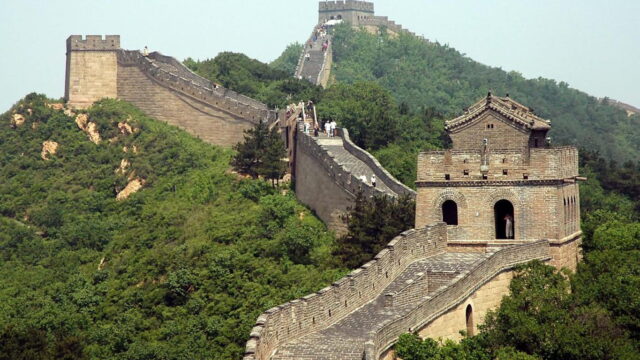
When you hear the name of the country “China”, what is your immediate reaction?
It’s an authoritarian, aggressive state that oppresses its citizens, perhaps.
If so, you are responding with a knee-jerk, ill-informed reaction, not really your fault, it’s the diet you have been fed, and the purpose of this article is first to try to persuade you to think otherwise, and then to describe what life is really like, from someone who actually lives there, experiencing it on a daily basis.
Well, where to begin?
Let’s start then with that (1) undemocratic state which (2) oppresses its citizens with its “social credit scores”, and is (3) an aggressive threat on the world stage.

Chinese democracy
I have to laugh when British people accuse China of being undemocratic. The UK has an unelected head of state (a king), an unelected upper chamber, and in the recent past had as prime minister an MP elected to the post by nobody (he was unopposed), and a foreign secretary a “lord” who wasn’t even elected as an MP at all. In recent years it has had a string of leaders each worse than the last, one of whom was forced to resign after 45 days having precipitated a financial crisis. The electoral system enabled the present ruling party to win a landslide with one vote from every five electors, so the vast majority of voters are completely unrepresented: clearly it has no democratic mandate whatsoever. The two major parties are like Tweedledum and Tweedledee, so the idea that there is some choice is pure fantasy. This, then is the benchmark against which I study the Chinese system.
How to organize a democracy in a population of 1.4 billion, some 20 times that of the UK? China does it by arranging successive layers of government, each one more or less selected by the layer below. I had a rough idea of how it works, but I asked Deepseek to give me a summary of how representation works in practice:
China’s Five Layers of Elected Representation
1. The National People’s Congress (NPC)
The highest tier: about 3,000 delegates elected by lower-level bodies, it meets annually to ratify laws/policies.
2. Provincial/Municipal People’s Congresses
Delegates are elected by city/county-level congresses.
3. City/County-Level people’s congresses’ delegates are nominally elected by township-level congresses or public votes.
4. Township/Town-Level People’s Congresses
Direct public elections take place.
5. Village Committees (Rural) / Neighborhood Committees (Urban)
They oversee local affairs. Village elections allow public voting too.
Key Notes on elections in China
No multiparty competition: all candidates are approved by the Communist Party of China (CPC) or its united front organisations. Indirect hierarchy: lower bodies elect higher ones, but the Party controls nominations at every level.
Symbolic vs. real power: The NPC and local congresses primarily endorse decisions made by the party’s Politburo Standing Committee (the PSC, China’s true ruling body).
Now it is becoming clearer. So I asked: how is the PSC chosen?
Deepseek started to reply and then abruptly stopped and asked me to turn to something else. So I had to use Firefox and Firefox referred me to the BBC. The PSC currently has seven members: Li Qiang, Zhao Leji, Wang Huning, Cai Qi, Ding Xuexiang, Li Xi, and Xi Jinping himself. All except Xi in their sixties.
And how is the PSC chosen? From the Politburo which consists of 24 members.
And how the Politburo is chosen is something of a mystery. So now we arrive at the heart of the matter: all power truly rests within the Party. Not very democratic: but this no different at all from the way affairs are run in the UK where:
1 The parties choose their candidates
2 The parties choose their leader
3 In the electorally successful party the leader becomes prime minister
4 The prime minister chooses his cabinet of ministers.
Same as China inasmuch as the public has no say in any of these matters.
Yet in the UK, at least they can change the party, you will say? Well, welcome to the new boss, same as the old boss. You are just evicting one set of snouts from the trough and letting in another, as Paul Foot once remarked. But finally it has to be said when considering their performances in recent decades that China’s governance demonstrably works, and the UK’s clearly doesn’t.
The CPC, it seems to me, is simply a continuation of the ancient dynastic self renewal system. It will govern while it has the “Mandate of Heaven”, a many thousand year old concept which signifies that the population is content (which it is), and it will cease when it loses their confidence. Democracy works pretty well at the local level, you can go to the local community office in China and try to sort out local issues, but, well like the UK and probably the rest of the world, the further up the chain you go it the murkier it gets. So in that respect I would say that Chinese democracy is in effect much the same as in the “democratic” world, no better, no worse.
Is Xi president for life? Not necessarily. Term limits were removed enabling him to take a third period (just what Trump is working up to, and FD Roosevelt had four).

Xi will have to ask for approval for a fourth. If he’s still the best choice, why not?
PS on this topic. A remarkably stupid current posting on The Unz Review prompts me to explain that China is Communist in name only. The private sector is huge: half of GDP, 80% of urban workers, and 70% of industrial output. Communist, China is no longer. Socialism, yes. With Chinese characteristics!
Social credit scores
I don’t have a social credit score in China. That is because they do not exist. Creditworthiness scores no different from those in the west do exist. They are run by Sesame Credit, which is is part of Jack Ma’s online-shopping empire Alibaba. Sesame determines a credit-score ranking — from 350 to a theoretical 950 — dependent on “a thousand variables across five data sets,” according to the firm. I presume I don’t have one of those either because I have never bought here on credit.
As for the purported social credit score, Wikipedia can answer to that.
There has been a widespread misconception that China operates a nationwide and unitary social credit “score” based on individuals’ behavior, leading to punishments if the score is too low. Media reports in the West have sometimes exaggerated or inaccurately described this concept. In 2019, the central government voiced dissatisfaction with pilot cities experimenting with social credit scores. It issued guidelines clarifying that citizens could not be punished for having low scores and that punishments should only be limited to legally defined crimes and civil infractions. As a result, pilot cities either discontinued their point-based systems or restricted them to voluntary participation with no major consequences for having low scores. According to a February 2022 report by the Mercator Institute for China Studies, a social credit “score” is a myth as there is “no score that dictates citizen’s place in society”.
https://en.wikipedia.org/wiki/Social_Credit_System
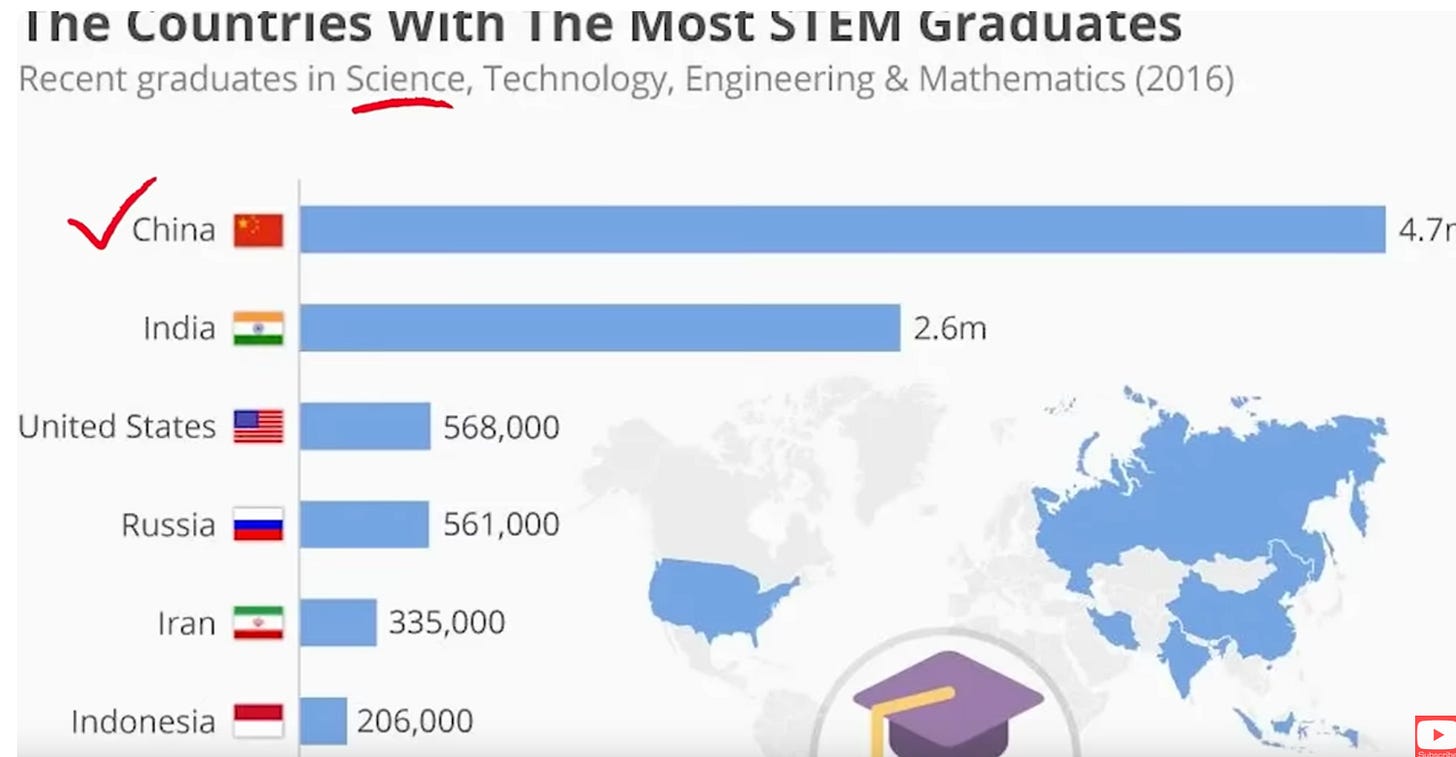
Chinese aggression
China is constantly being accused by western nations – well let’s narrow it down a bit and say NATO (responsible for 80% of world military expenditure) – of being aggressive. That strikes me as a typical example of projection. Let’s consider some facts.
First we should note that China has been subjected to invasion and rule many times during the past thousand years: the Mongols (Yuan dynasty). Manchurians (Qing dynasty), a whole cavalcade of western nations in the 19th century and Japan in the 20th.
How about the reverse? Wikipedia has a useful page on the subject listing incursions since the accession of the CPC in 1949, so that’s what is relevant to the present argument. There are just two true invasions.
1950, China annexed Tibet. It considered it to be a lost province of China.
1979, in the Sino-Vietnamese war, China launched a brief offensive ostensibly in response to Vietnam’s invasion and occupation of Cambodia in 1978.
China also fought for North Korea, Burma and Vietnam against foreign aggressors. I just marched against the Vietnam war in London in 1968, suffering no injuries. The UK police then did not assault demonstrators.
All the rest are simply border arguments, not invasions, right up to the absurd current water pistol fight with the Philippines in the South China Sea, which the USA is determined to push into a serious confrontation. What gets little publicity is that the China/Philippine dispute is just one in a complex situation there involving six other nations too, but China gets all the condemnation.
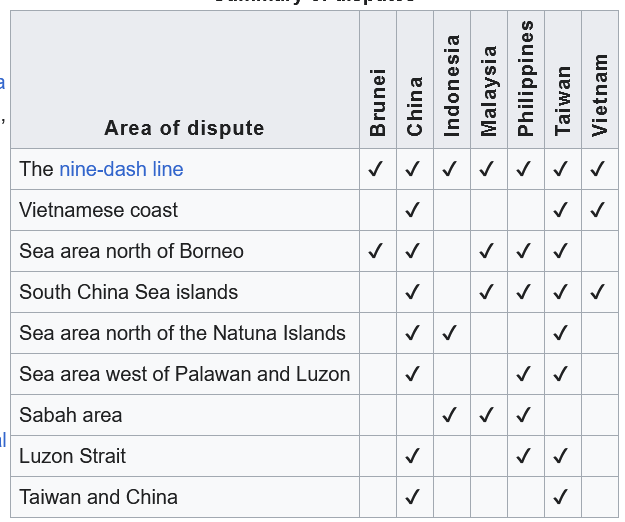
My own opinion is that that Chinese claim is a bit ambitious being a thousand or so kilometres off its southern land border, but it does then raise the question of the USA’s claim to Guam which is 9,800 kilometres from Los Angeles.
So what countries’ populations in the immediate region hold low opinions of China as a result of its “aggression”? Here are percentage opinions from Pew, those to the left.
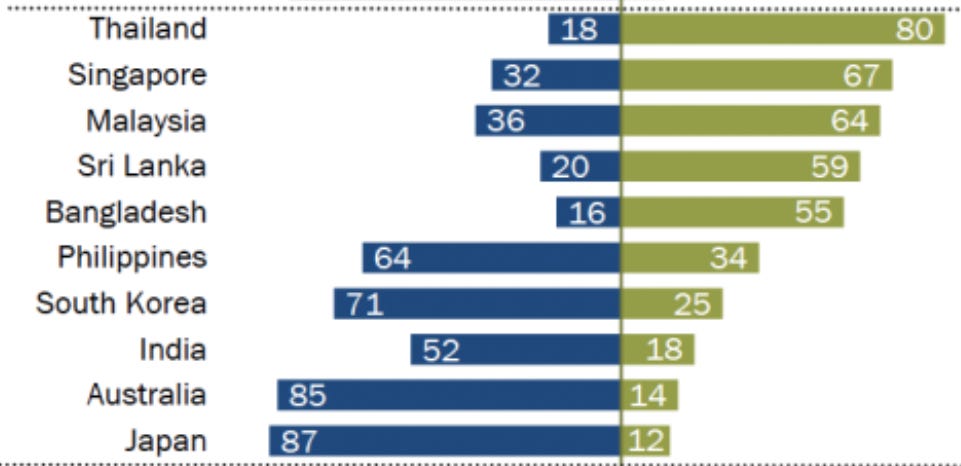
The bottom five, all below 50% approval, are all in the western orbit. Undoubtedly, they all have predominantly Sinophobic media. I have experience only of the Philippines, which has four main national dailies, of which one, Rappler, has received substantial funding from the CIA via NED. They all libel China every day. It’s a miracle that 34% have withstood the propaganda, this would be the Duterte faction (of which I am one). If Sara gets the presidency in 2028, hopefully things will change.
So I don’t think that the claim that China is aggressive holds water. It’s basically a peace loving nation which seeks win-win agreement in its foreign policy, and is very actively pursuing it worldwide. If you want a truly aggressive nation, how about this one, which has been at war for almost its entire life?
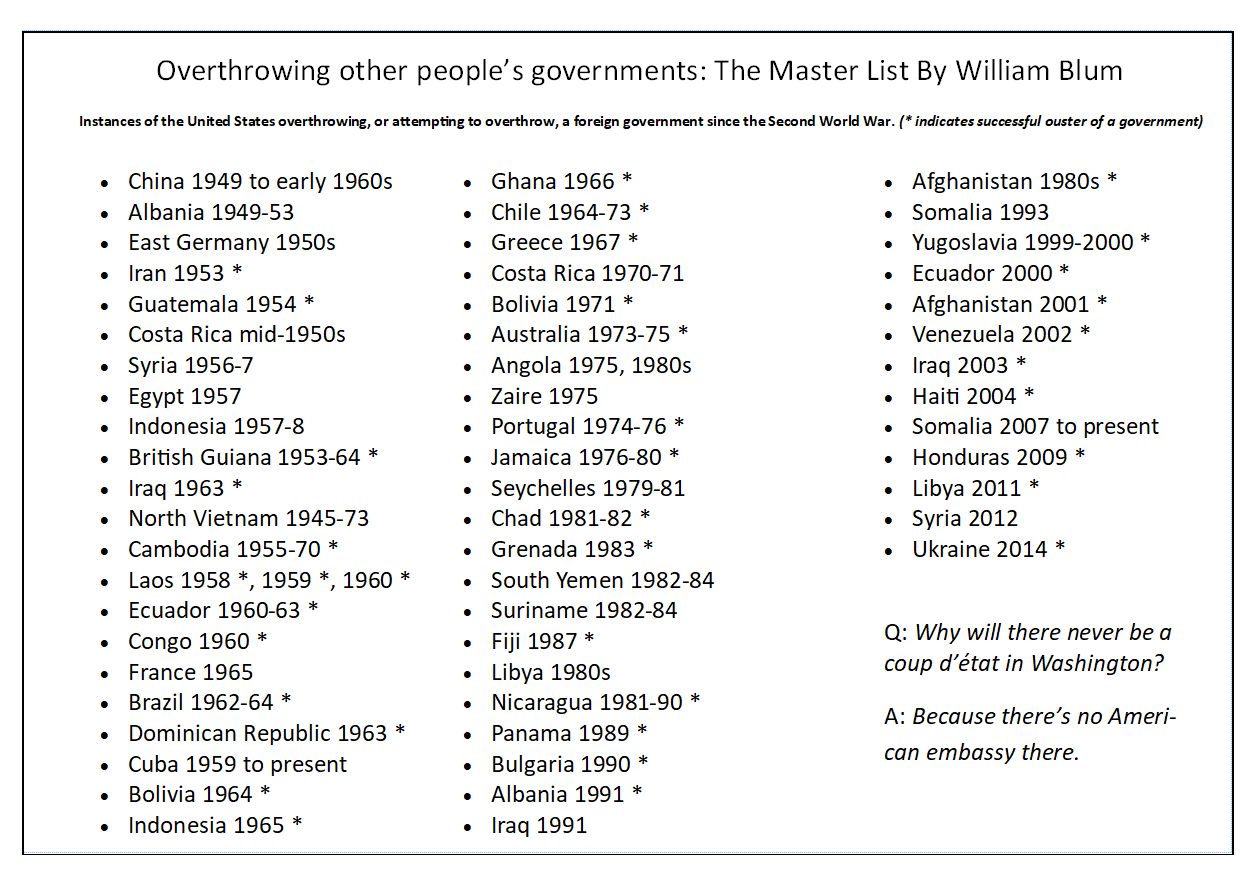
Blum has died but that interference by the US has continued since 2014. Here is a list of countries whose governments China has attempted to overthrow in the same period.
Now let’s take the next bit a step at a time as if unaware, it may come as a shock to you. First, how many military bases does China have off the US west coast, its Atlantic coast, or the Gulf of Mexico?
The answer, as I am sure you know, is none.
And how many does the USA have off the coast of China? Take a look.
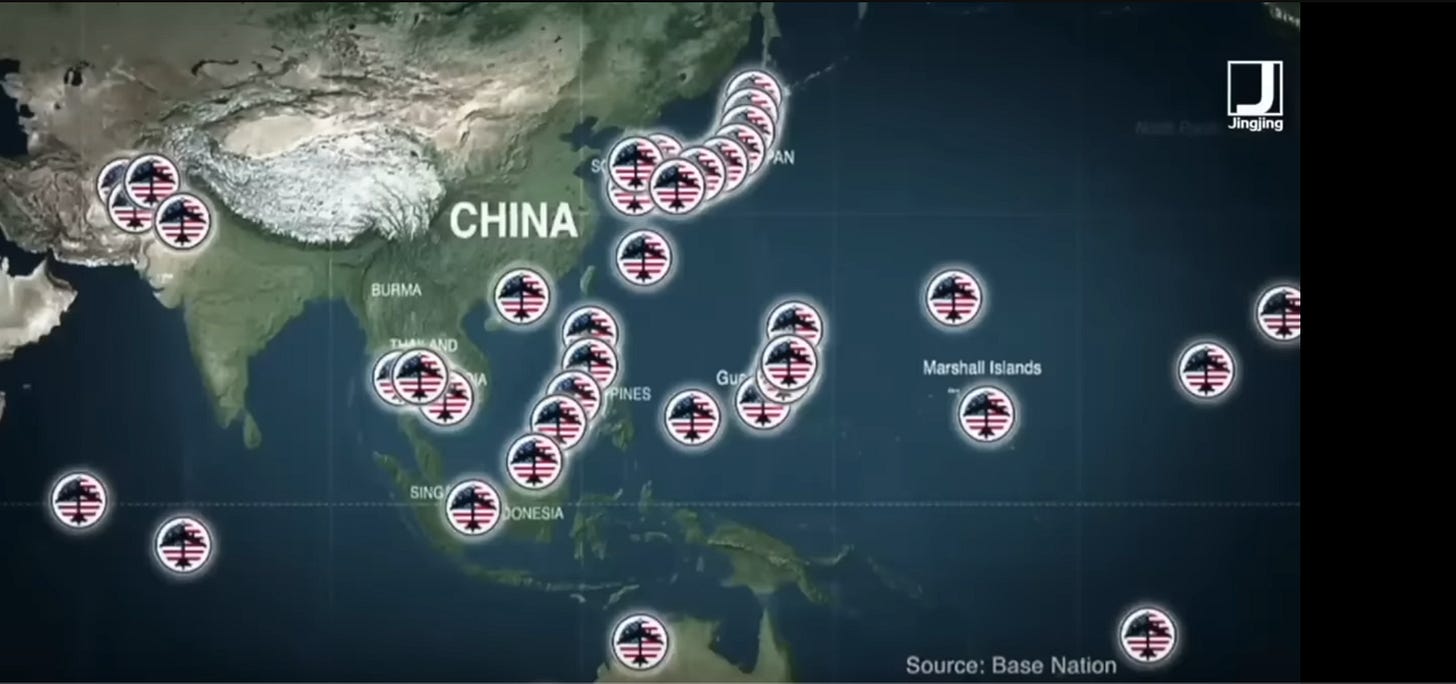
Add another four newly going into the Philippines, three in the north at the closest approach to Taiwan, and one on the western island of Palawan, to interfere in the Philippines dispute with China.
So how many military bases does China have outside its boundaries?
As far as I can determine it has one, at Djibouti, on the African coast at the southern entrance to the Red Sea.
And how many external military bases does the USA operate worldwide?
Estimates vary between 750 and 800. Paid for, of course, by the poor US taxpayers.

I don’t think we need say any more about “aggressive” China.
Now that we have dealt with those three main perennial false accusations we can move on to other lesser matters of disinformation.
“Ghost towns”
China’s ghost towns — fully fashioned but unpopulated – are a myth that was set in motion by an uninformed journalist is 2009, and it quickly caught fire in an uncritical Western media always ready to smear the country. The idea that a local authority would spend a vast sum of money on building a new town without doing any research only to find that no-one wanted to live in it is simply ludicrous, but the necessary investigation was not followed through. The simple fact of the matter is that some authorities, rather than beginning to fill them before they had a good complement of service utilities, preferred to wait until near completion. Another factor was that, while population stabilised under the One Child policy and is now actually falling, China had experienced significant under-urbanization for many years and has been rapidly addressing this issue: in 1978, only 18% of China’s population lived in urban areas, but by 2020, this percentage had increased to 64% (just consider, that’s a massive movement in a short time), and so the development of new population centers had become increasingly vital. There is a very long and fair minded account on Wikipedia and I shall just pick out the main nuggets of the story.
So in 2009, Al Jazeera journalist Melissa Chan came across the newly built Kangbashi district on the eastern edge of Ordos City in Inner Mongolia. Though approximately 30,000 people already lived in the area, she described it as “empty” and labeled it a “ghost town”. This narrative quickly spread through international media, fuelling Western scepticism about China’s economic growth, suggesting its rapid development was exaggerated or unsustainable. However, Kangbashi was just five years old when Chan visited and the population was growing steadily. By 2017, the resident population had grown from 30,000 to 153,000 and around 4,750 businesses were then in operation in the city. In 2021 it was reported that empty properties had all been sold and new building had started.
I think it’s called “forward planning”.
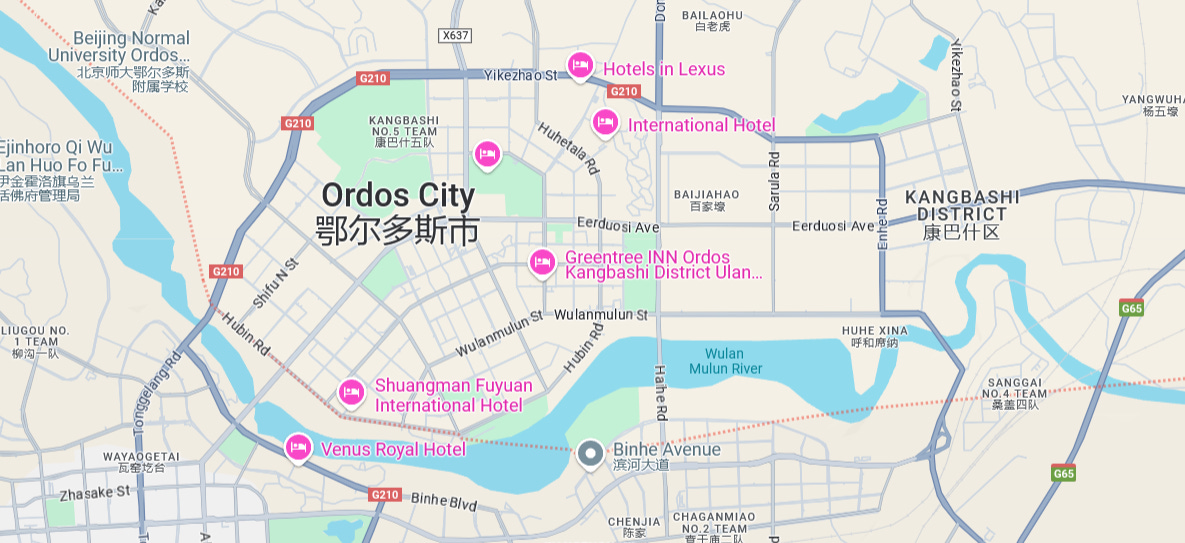
Just a few more examples of one time alleged ghost towns from the Wikipedia piece.
Pudong was once farmland on the other side of the Huangpu river at Shanghai. In 1993, the Chinese government set up a Special Economic Zone, creating the Pudong New Area. Population was 3.76 million in 2010 and 5.68 million in 2020. It is a major financial district and has just announced a forthcoming 30 day visa free entry for foreigners to a new business district near the Pudong Airport.
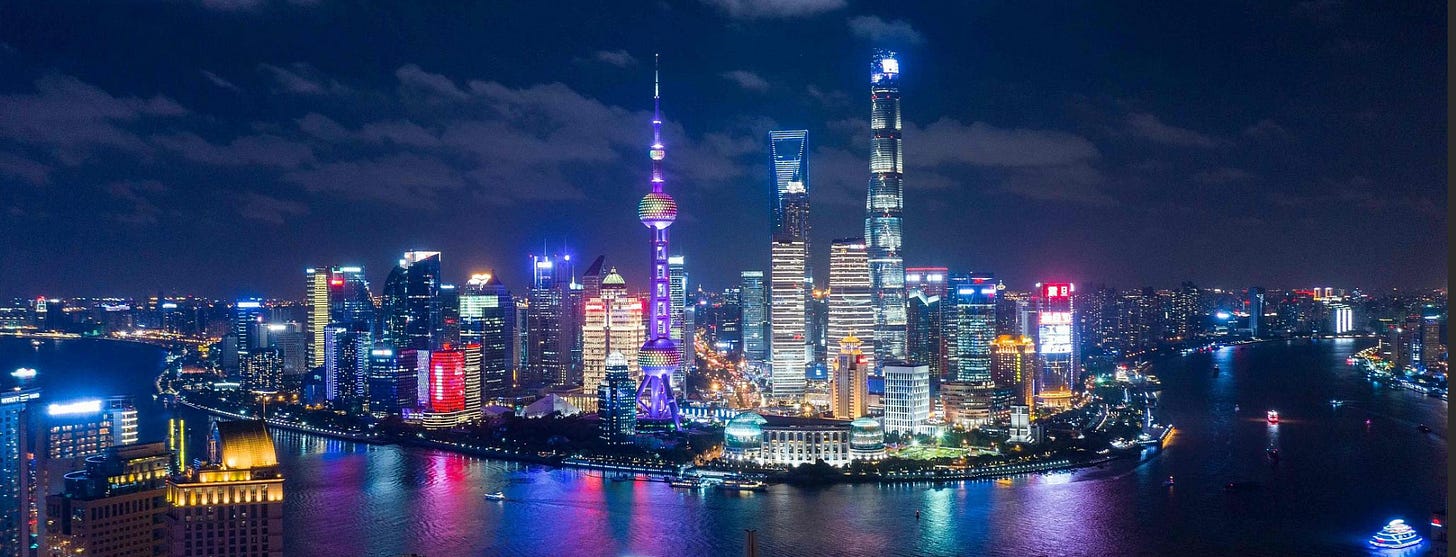
Pudong, Shanghai
Chenggong, Kunming, Yunnan Province. In 2003 Chenggong was designated as a development zone of Kunming. It is the site of the new Kunming City Hall, and new campuses for Yunnan University and Yunnan Normal University. As Central Kunming became overcrowded, some local government departments moved to Chenggong in 2012. By 2017, the district had become home to many more offices and residents with more redevelopment still on the horizon. Deepseek says it now has a population of approximately 650,000 to 800,000 residents.
Zhengdong, a new area of Zhengzhou, Henan Province, was deemed as a “ghost city” in a 2013 news report by 60 Minutes, which described it as having, “new towers with no residents, desolate condos, and vacant subdivisions uninhabited for miles and miles and miles”. The district’s economy has grown at an annual rate of 25% from 2013 to 2018, and the population grew 27.5% from 2019 to 2020. By 2023 it had reached 1.3 million people.
Tianducheng, Hangzhou, Zhejiang Province, a beautiful town designed to resemble Paris, was initially characterized as a “ghost town” in 2013. Originally intended to accommodate 10,000 residents, its population had increased from approximately 2,000 in 2013 to around 30,000 by 2017. The development has been expanded multiple times to accommodate the rising demand. Deepseek says while there is no official, up to date population figure, it being basically a housing estate subdivision, estimates suggest that Tianducheng now has tens of thousands of residents.
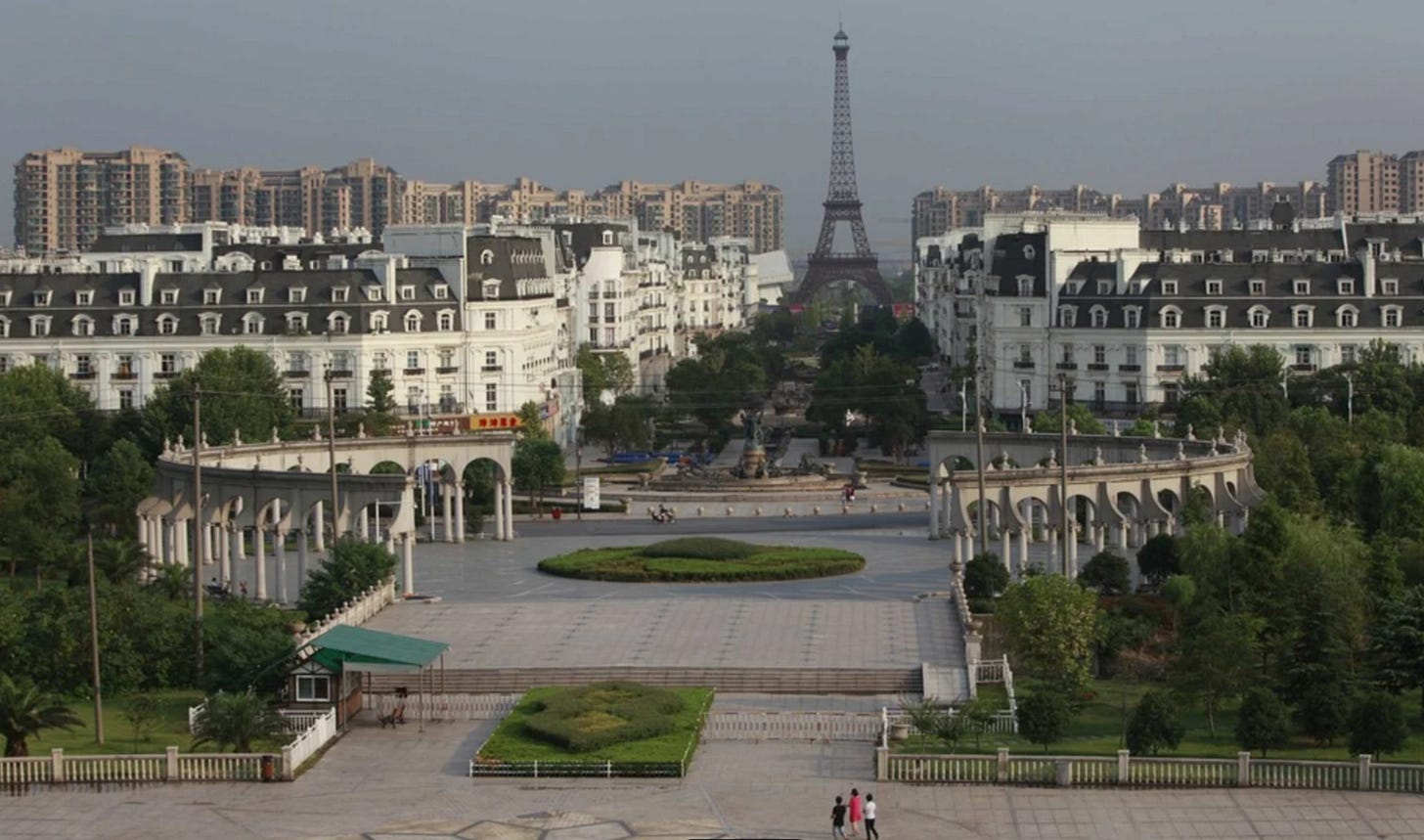
Tianducheng
The COVID story
Covid has of course been blamed on China, but several particular pieces of evidence stand out for me.
I am not a microbiologist, but some who are have said that it is most unlikely that the peculiar structure of the virus could have developed naturally.
I had seen it said that the Wuhan labs which have been blamed did not have staff with the requisite knowledge to create the variation.
The USA has openly admitted that it runs 336 biological laboratories in 30 countries around the world, including 26 in Ukraine.
Well, whatever. China’s Covid experience is worth examination. After a shaky start, the Wuhan district was locked down from 23 January 2020 until 8 April 2020. After this there was no serious outbreak in the entire country until the decision was made late in 2022, when the virus had lost much of its vitality, to let it rip. During the intervening period we lived fairly normal lives while the rest of the world struggled with it. We had triple vaccinations, Sinopharm, which was moderately effective, not the poisonous mRNA, and no-one to my knowledge had any side effects from it. We had to take a PCR test weekly and that was it. At Christmas 2022 all my friends and family got it, but not me, I had recently been infected in the Philippines and this seemed to provide me with full immunity. I heard of just two elderly relatives of friends who succumbed.

So China’s response was an example to the rest of the world.
Deaths per million population updated 1 April 2025:
USA 3,493; UK 3,404; EU 2,812; Russia 2,769.
China 85.
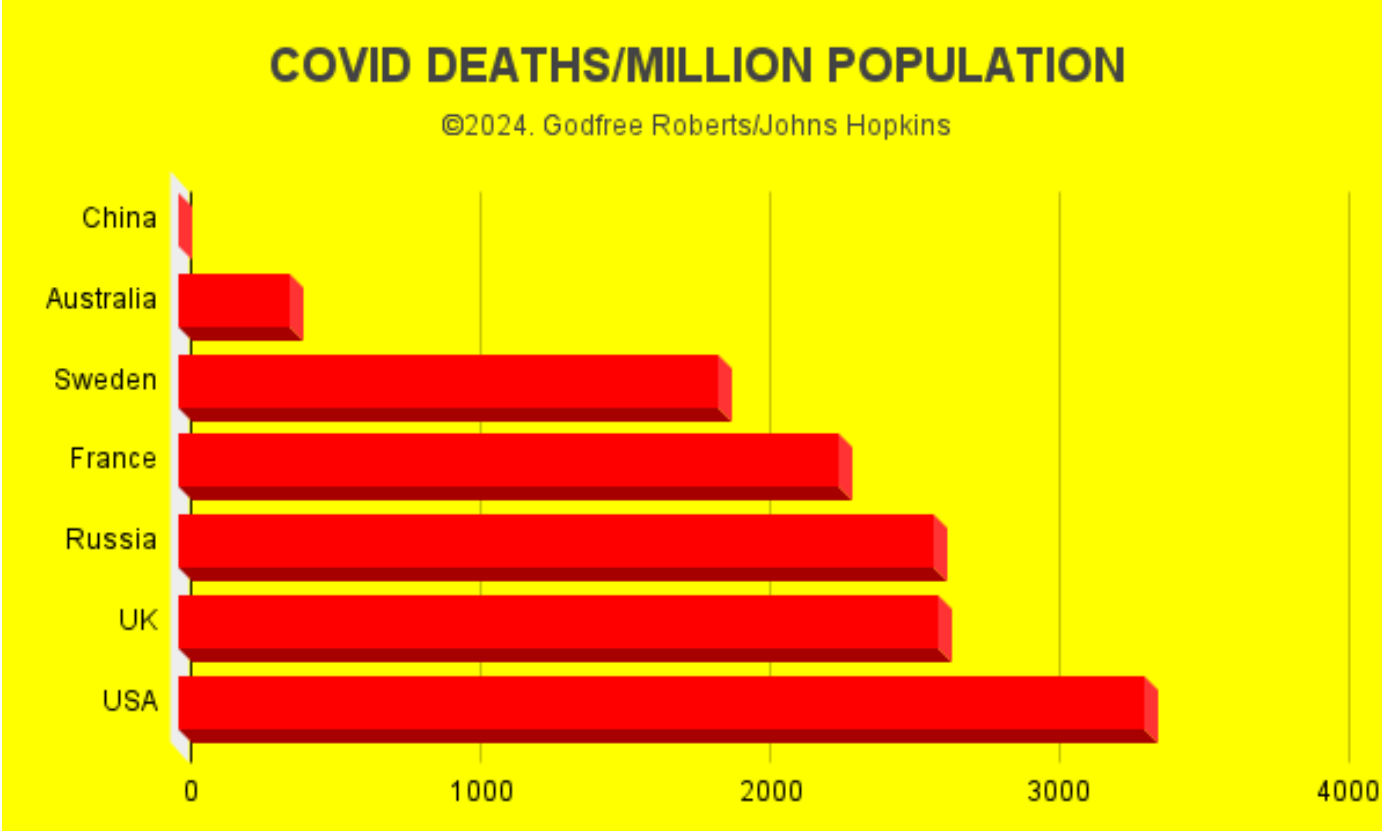
Let’s now move on towards living in China and look more generally at the health service.
The Health Service
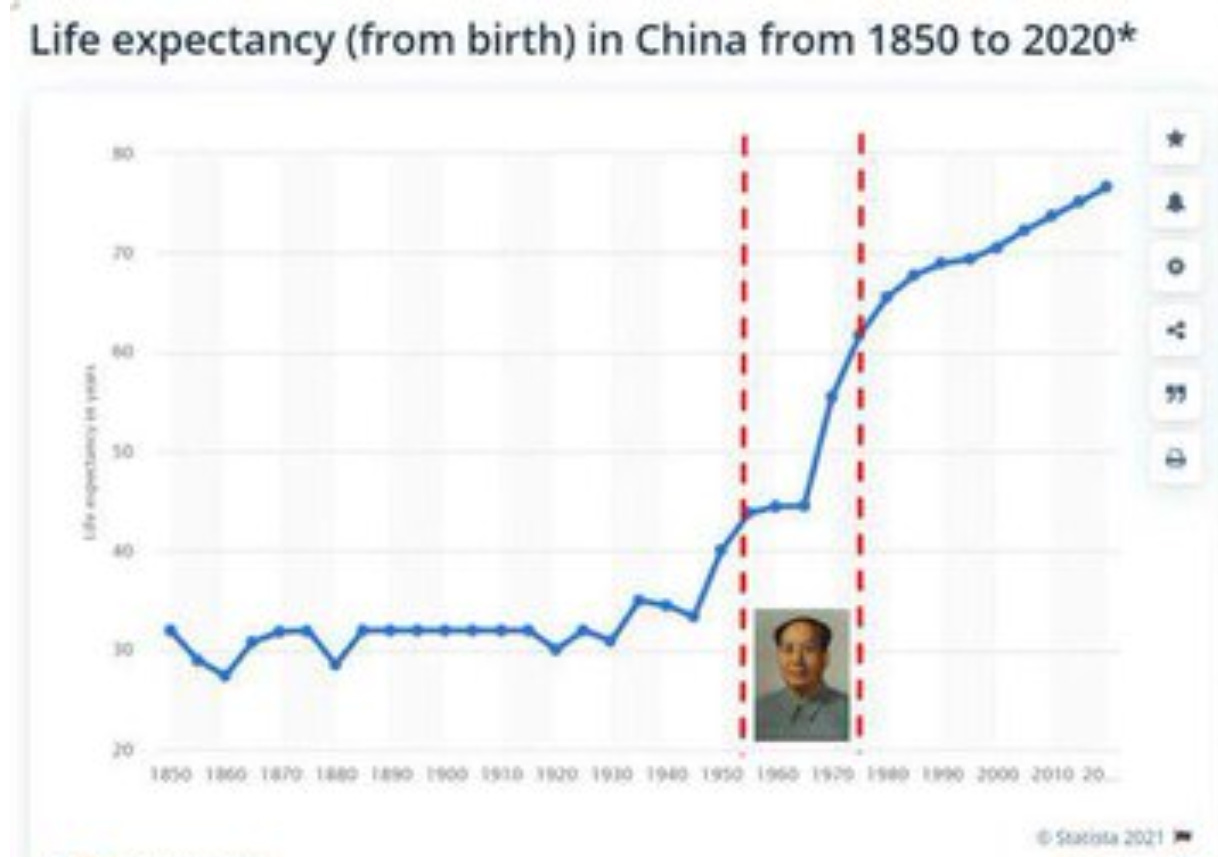
In 2017 while in England I began to suffer shaking fits at night. The local doctor diagnosed a bladder infection and prescribed an antibiotic which fixed it, but it came back twice more in succeeding weeks and each time I was prescribed the same medicine.
When I suffered a fourth attack, I was in China. I went to the local People’s Hospital (they don’t have GPs, local general practices like in the UK) to ask for medicine. I arrived and went straight up to the window at 9.30 a.m. The clerk took my particulars and told me to wait upstairs.
At 10.10 a.m. precisely I was being interviewed by a consultant urologist.
I had numerous tests during the morning and went back to his office at 2 p.m. He had all the test results in front of him. He told me that it was highly probable that I had prostate cancer and prescribed medicine to stall the development.
Armed with this knowledge when back in the UK I went to the GP (who made no apology) and the diagnosis was confirmed at a hospital. I eventually had radiography treatment which failed on test early in 2021 when I was back in China. This time I went to the University of Hong Kong Hospital in Shenzhen and I now receive a different and continuous treatment, a stomach implant every three months, and this has held the cancer at bay for four years. But I have little doubt that had I not got that original diagnosis in China, the cancer would have spread to the rest of my body before being picked up in the UK.
Later that year my gall bladder exploded and I risked bleeding to death. I was whisked back to the University Hospital and operated upon that same night.
Since that year I have enjoyed reasonably good health for my age, but I have no doubt that if I had had to rely solely on the UK NHS, I would not be writing this today.
Afterthought. The costs. Having never paid contributions I pay the top whack. For the cancer diagnosis, about $65. For the operation, $3,000 including two weeks in a hospital bed. The implants are $340. Those costs are three times what Chinese would pay with insurance. Without it they pay 70% of the cost.
I don’t think I need say any more. Oh, I wrote a Substack encouraging men over 50 to go and take a PSA test for prostate cancer. If you are, please do. It might save your life.
Demonstrations & protests
I’ll quote here from Jerry’s Take on China because he sums the situation up well.
People outside of China don’t know but there are hundreds, if not thousands of non violent, non vocal but very deliberate acts of protest here every single day. Even Wikipedia, not one of my usual sources, declares there are hundreds of thousands of protests every year – this is a country where Western media constantly tells us that protesting will get us locked up, disappeared, or worse. But the truth is VERY different. Wikipedia, using unnamed scholars as their source, suggests that, and I quote: “these protests don’t form an existential threat to the CCP because they lack connective tissue” in fact one part of this is true, they don’t form a threat to the CPC (not the CCP), but not because they lack connective tissue, cohesion or any of the reasons that unnamed Western scholars might suspect, the reason they don’t form a threat is because the Communist Party of China has a constitution and, while it’s a long one, there are many places I could quote from it, this is one of the paragraphs I like best:
“The Party has no special interests of its own apart from the interests of the working class and the broadest masses of the people. At all times the Party gives top priority to the interests of the people, shares weal and woe with them, maintains the closest possible ties with them, and persists in exercising power for them, showing concern for them and working for their interests, and it does not allow any member to become divorced from the masses or place himself or herself above them.”
In other words, the Party has a mandate to listen to the people. Which they do.
The Mandate of Heaven at work, you see! Jerry has a Substack and puts videos on YouTube. Worth following, take a look.
https://substack.com/@jerrystakeonchina?utm_source=top-search
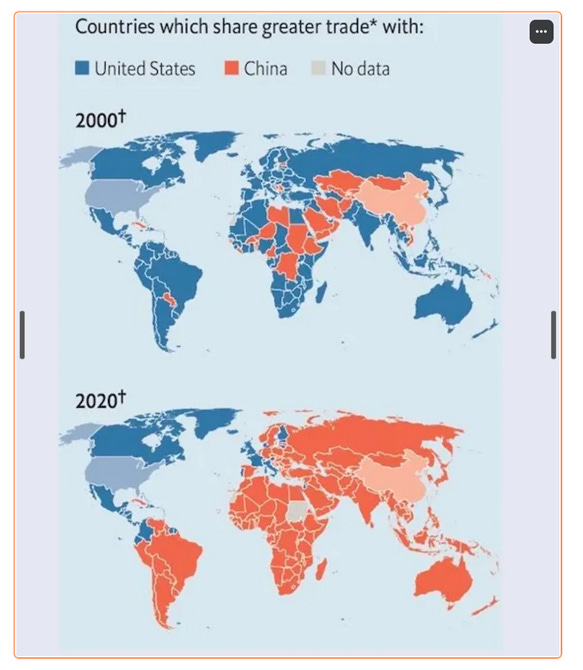
Free speech
This seems to follow on naturally here.
First I have to say that social media are massively used in China. Everybody but everybody is on Weixin (Wechat). Local users as in the West can get censored or banned for straying too much off acceptable discourse. By way of example it was reported last year that Chinese social media companies had launched a new crackdown on user content, targeting posts that show off personal wealth and financial extravagance. Posts showing off luxury cars and expensive properties, and posts seen as bragging about wealth and the freedom that comes with being rich were removed.
As for my own postings here, I am sure that if I were putting them up in, well, particularly the UK or Germany, I would have been progressively censored, blocked and “taken in for questioning” (so much for the “Free World”) particularly for support for Hamas. I don’t want to stray far off topic here so I’ll just say that while actually not expressing support as such, I’ll say Hamas were elected in a free election in Gaza and so are the legitimate government to what Israeli bombing has left of it and its people, and an occupied people have the legal right to resist (which the occupier does not) so the UK is in contravention of international law, as it habitually is, in its attitude to Hamas: but then again, international law no longer exists, when the USA can sanction the ICC. Anyway it has been a failure and BRICS are talking about creating an alternative. But my postings within China attract no official attention, perhaps because my world view does not differ much from that of the Chinese government and I have nothing to say about them. Like most people I have a VPN and will say more about that further down. And I can wear my Palestine flag T-shirt in China without fear of arrest too.
The action described above regarding censoring social media could be described as authoritarian, but to me its just another aspect of what I consider to be a tendency to nannying. There is rarely a set of steps which does not carry a “take care” warning. A bare wall cannot be tolerated, it must have notices plastered on it, sometimes to say “do not” perform actions that no-one would consider doing or which seem somewhat obscure: two favourites from my collection are “No feather picking” and “do not release turtles into the water”. But many are routinely disobeyed. Recently on a beach I saw a notice forbidding four activities and was delighted to see that all four of them were being carried out just behind it, while the police looked the other way. There is a certain anarchic, rebellious tendency in the Chinese character.
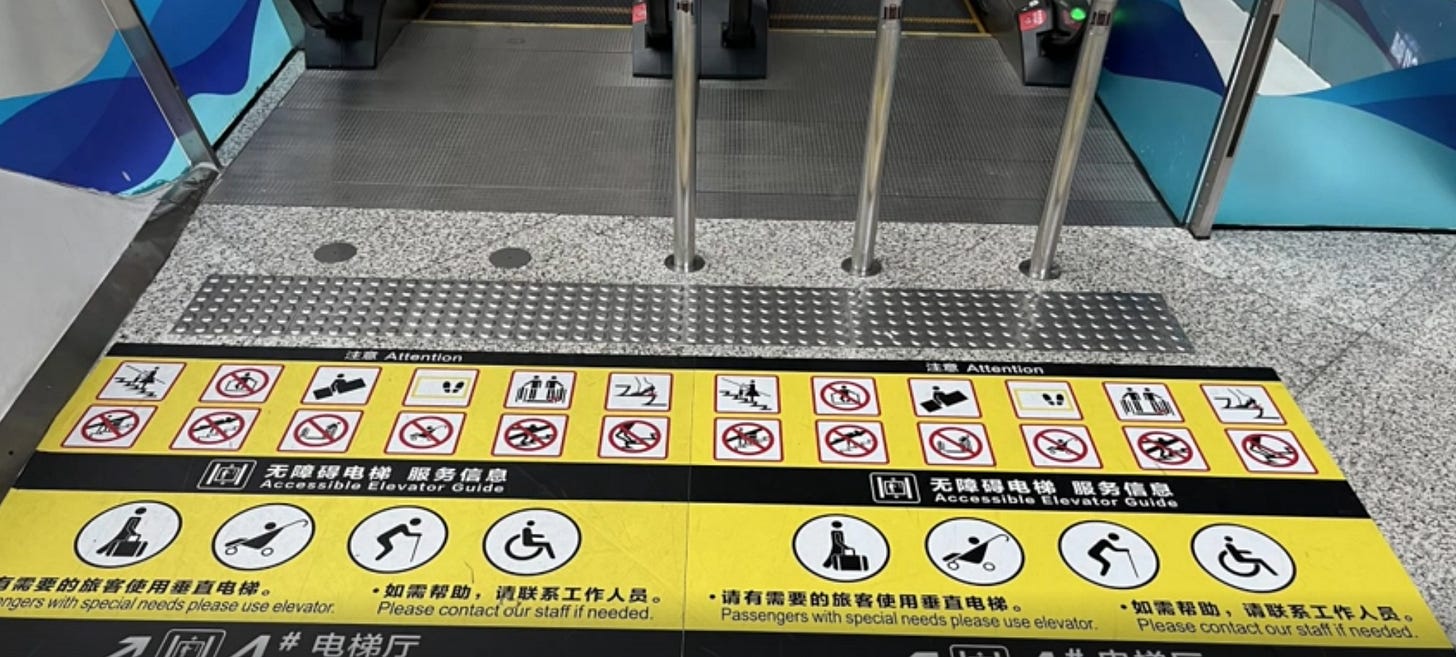
Oh, I forgot one strange aspect. I had become a frequent user of Deepseek, but as of late while engaged in research for this article, answers to questions start to roll out and then frequently disappear, and Deepseek suggests we talk about something else instead. So it seems that free speech does not extend at all well there. In response I have taken to pulling a screenshot quickly. But my questions were not at all provocative. I had simply asked for the names of members of the political standing committee (above), I got them from the BBC. This morning I just had time to see that there is no extradition treaty between the UK and China before it got wiped (I had just read that the UK’s pro-Israel anti-free speech laws extend – so they insist – to UK nationals living abroad, ha ha!) so I shall just carry on undeterred as before. And never go back there.
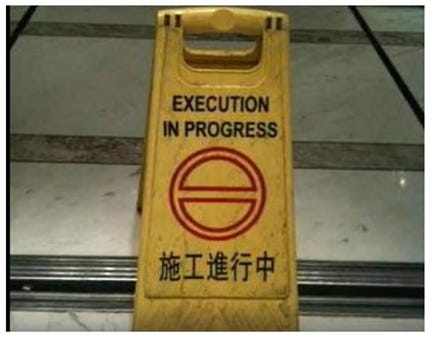
Back to social media for a moment, I should add that one of my reasons for writing this article is that I spend too much time correcting idiotic comments about China by know-nothing imbeciles. In future I’ll just give them a link. Example: somebody has just written a typical piece of nonsense in a comment on Moon of Alabama:
China reuires (sic) people who come to China to install an app on one’s smartphone that allows the chinese government to track whereever you go.
Posted by: WMG | Apr 17 2025
Reply: I have entered China, I don’t know, maybe about 200 times in 18 years. It has never, never happened. Did it happen to you? Or was it perhaps a dream?
Oh, look, here’s another one on the Unz Review:
“China can be an extremely toxic customer who will pull all kinds of stunts on importers.”
Reply. Your evidence? My company in the UK has been exporting to China since 2006.
It is now our biggest market. We have never had any problem and never had a bad debt.
Xinjiang and the Uyghurs
I don’t intend to dwell long on the “Uyghur genocide”, I hope by now that most people are aware that it is a fabrication dreamed up by a mad religious German zealot with assistance from disaffected and exiled Uyghurs, and amplified by CIA funded offshoots such as the Australian ASPI. In recent pieces on Auschwitz and the former Philippine president’s “Drug War”, I explained that such propositions are best examined not with the assistance of possibly biased and bought for opinions, but in the light of indisputable scientific and mathematical facts.
During the One Child Period between 1975 and 2015, 26 Chinese provinces allowed ethnic minorities including the Uyghurs to have at least one additional child.
2000 census: 8.4 million Uyghurs
2020 census 11.6 million
The population is now reckoned (Deepseek) to be between 12 and 13 million.
Not a very effective genocide policy then. A UN report in 2022 failed to accuse China of genocide. Instead it defined “China’s arbitrary and discriminatory detention” of Uyghurs and other Turkic speaking people “may constitute international crimes, in particular crimes against humanity.” May. Not even “does”. It should be remembered that China had suffered a number of terrorist attacks from ETIM (Muslim separatists) which it had to deal with, and it succeeded in stamping them out, and that operation is what they are referring to. But anyway of late the usual suspects seem to have cooled off on propagating that nonsense and turned to something called “cultural genocide” which among other aspects includes religious suppression. At the last count there were 24,400 mosques in Xinjiang. See also the next section.
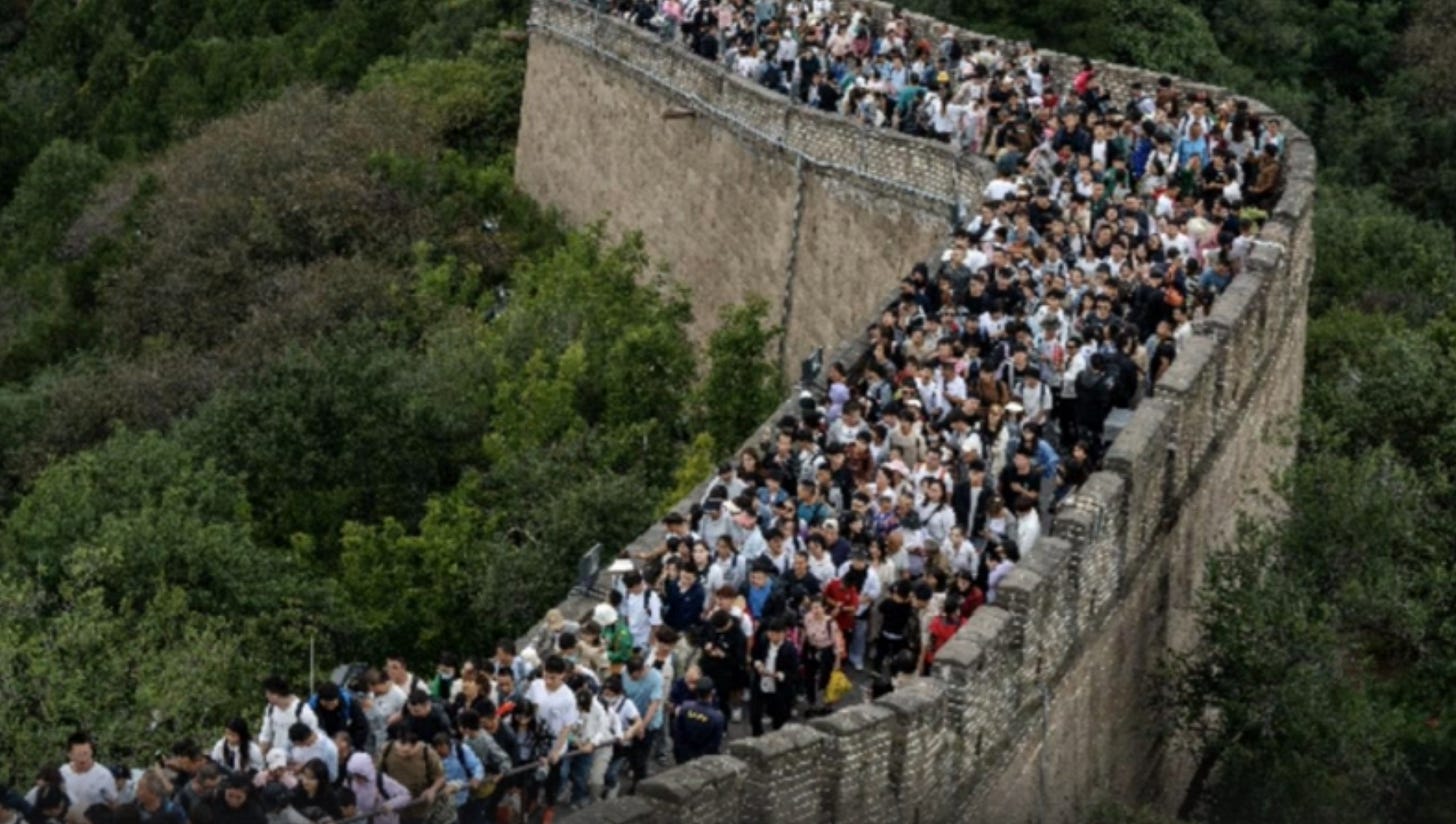
Holiday time can get a bit busy in China: here on the Great Wall.
The Shaoshu Minzu
The Uyghurs are one of the Shaoshu Minzu, China’s recognised 55 minorities, many of which reside in the far southwest, bordering Myanmar. The main contingent in China is the Han which accounts for over 90% of the population. Far from being genocided, the minorities are treasured, and no more so than in the Splendid China Folk Village park in Shenzhen which features a substantial number. Below is a scene from the Uyghur exhibit. The Uyghur house in the background is the genuine article, transported brick by brick and reassembled there.

There are over a thousand parks in Shenzhen. Next to the Folk Village is Shijie zhi chuang, the bizarre Window of the World theme park, which contains 130 scale models of world landmarks, including a one third scale Eiffel Tower which dominates the skyline, and this London Tower Bridge..
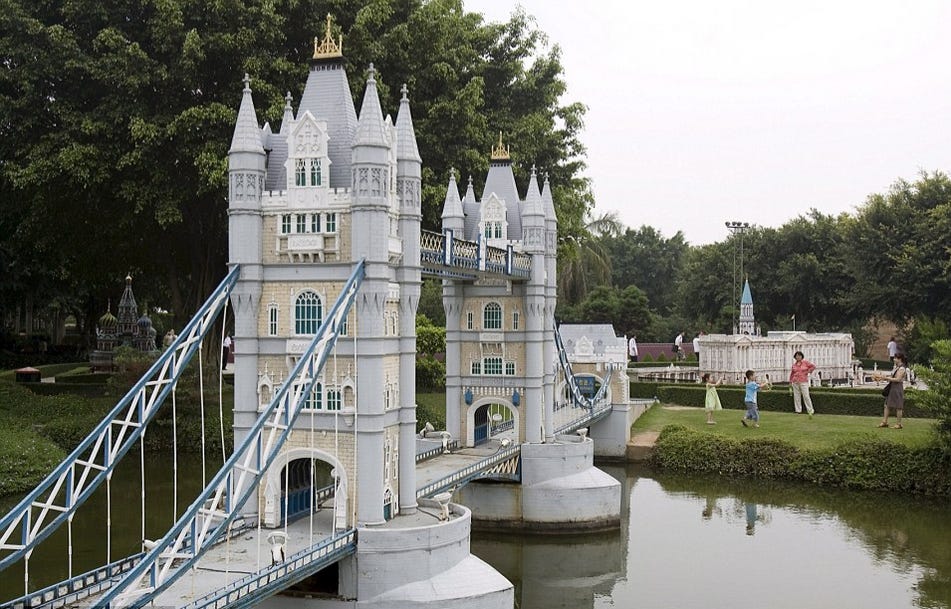
The economy
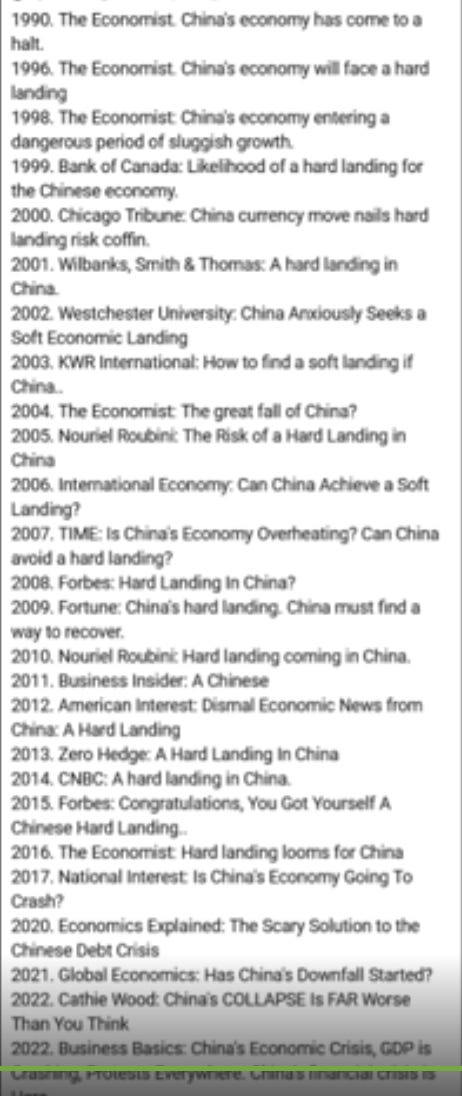
ABOVE: 32 years of Chinese economic collapse in Western media.
BELOW: the facts. These data to 2018. In 2023, almost 18 trillion. NOT PPP: see below.
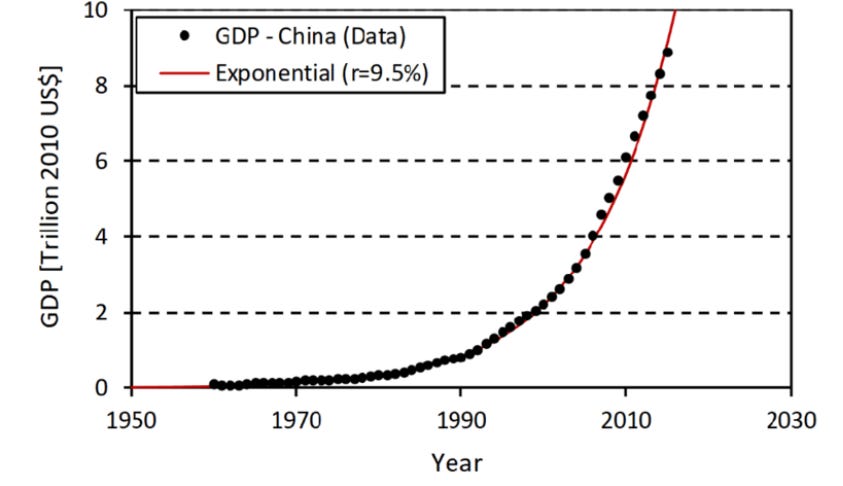
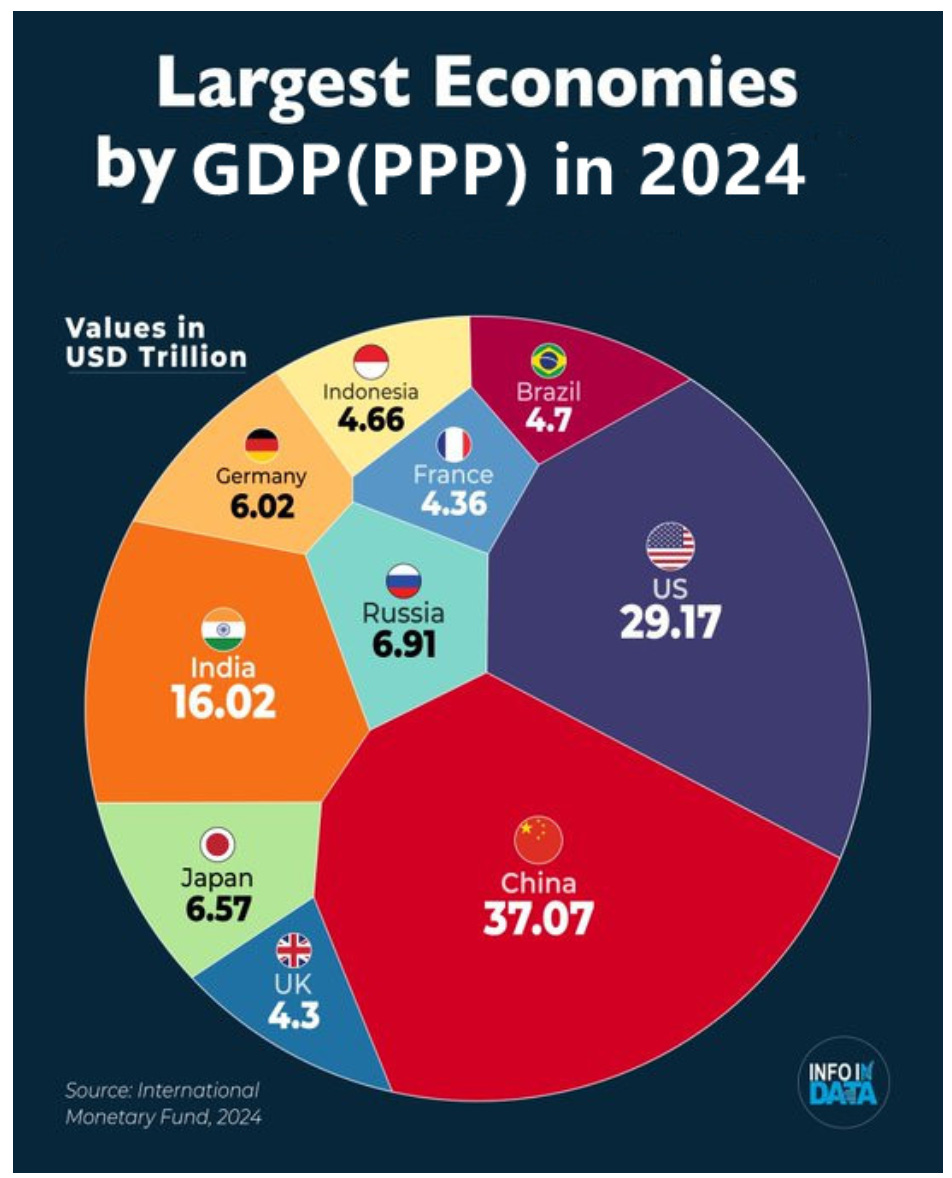
PPP (Purchasing Power Parity) is the true spending power value as experienced by inhabitants of the particular country. For example, there are around 7.3 Chinese Yuan to the US dollar but in PPP terms it is currently 3.99, so your money there is roughly worth double what you’d expect. This has an implication for cost of living which we shall look at in the next section.
The UK just sneaks in at the bottom. Now overtaken by Brazil and Indonesia! Who knew?
The cost of living
Ron Unz wrote a very perceptive paragraph on this topic in a recent article.
We should also recognize that a very substantial fraction of China’s population is still rural, and their incomes are far below those of urban Chinese. This suggests that the actual standard of living for the latter may already be roughly comparable to that of Americans or Europeans, an absolutely astonishing development given China’s horrendous past poverty.
I have no doubt he is thinking along the right lines but I actually think the standard of living for many Chinese is now actually higher than in most western countries. I have family experience in China to look at and I will compare with the situation in the UK where I formerly lived. Let’s do some sums.
Wages
Factory workers in southern China now expect about $5 an hour (I still have contacts in local industries so that figure is solid). Minimum wage in UK which amounts to the same thing is about $15, so we’ll use that factor of three in comparisons. There are minimum wages set in China but at least in Guangdong they are far lower than what actually has to be paid to get a workforce.
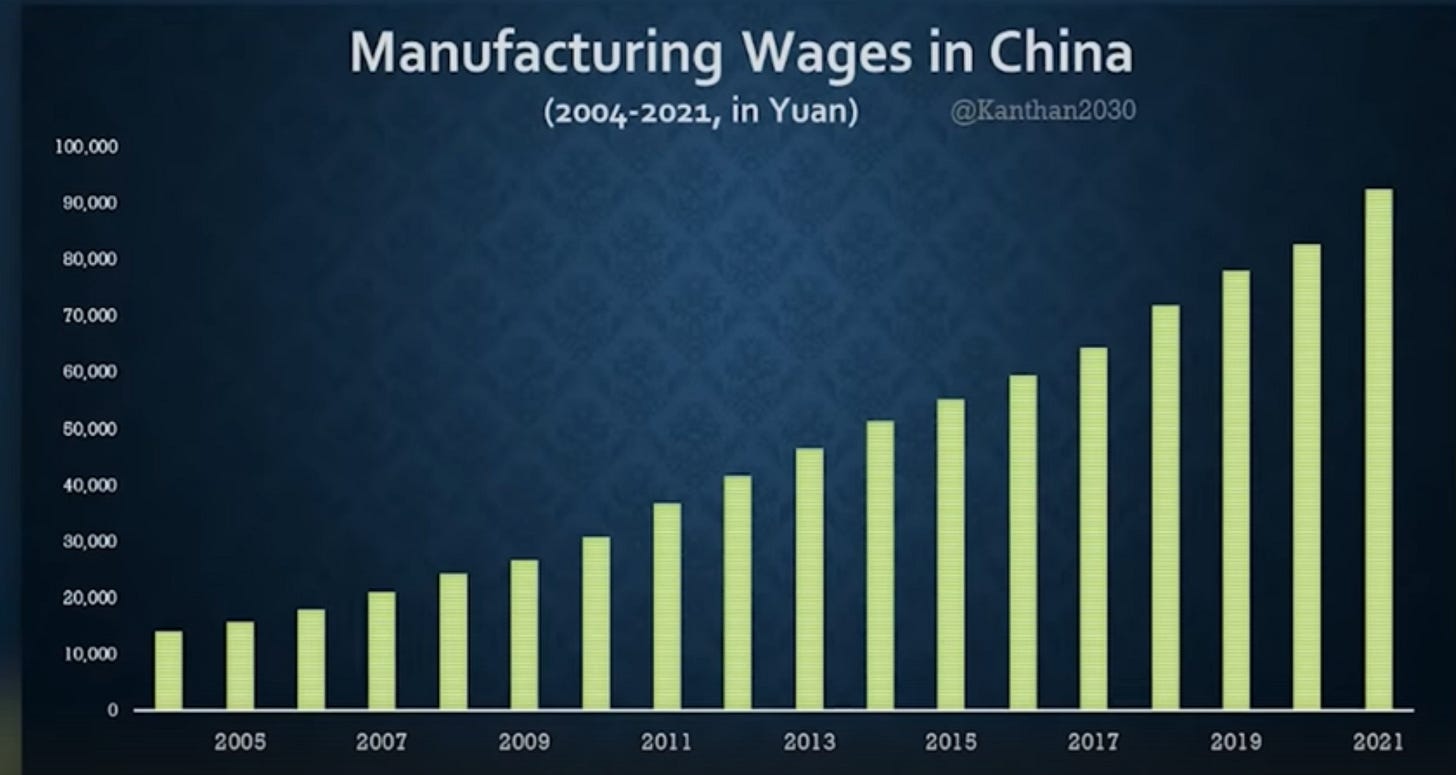
Property
A cousin of my wife bought an apartment in Shixing, a small town in up country Guangdong province ten years ago, 126 square metres for $70,000, valued today at $110,000, so $875 a square metre. Her mother similarly at the same time in Hengyang city, over the border in Hunan province. Her sister last year bought a 276 square metre apartment in the same city for $275,000, that’s $1,000 per square metre. So broadly comparable and usable as a benchmark.
The latest average price for UK houses is $355,000 (USA $387,000), so divide by three for wage difference and you get about $120,000, roughly comparable with those 126 square metre properties. But they seem on the large side, to me, what are the areas of the UK houses?
I found a reference that says the average UK house or flat ranges between 85 and 100 square metres so that puts the cost per square metre in the range $3,550 and $4,200. Divide by three to allow for the wage difference and we get $1,200 to $1,400. So housing in China at $875 to $1,000 in those examples is considerably cheaper than the UK (and USA) average.
Current Loan Rates: UK, typically 4.38% for the first two years, then an exorbitant 7.49% for the remaining 23 years (Nationwide Building Society). USA 6.90%. China Loan Prime Rate is at 3.10%, compared to 3.10% last month and 3.45% last year. This is lower than the long term average of 3.68%. Home ownership in China is 96%, USA and UK 65%.
A win for China compared to the UK and USA.
More here:
https://en.wikipedia.org/wiki/List_of_countries_by_home_ownership_rate
Utilities
The costs of gas and electricity have skyrocketed in the UK and Europe owing to the misguided attempt to sanction the lowest cost supplier of fuel.
The average UK monthly gas and electricity bill from 1 April is $215 a month, the average water bill is $49. So these utilities rack up to $264 a month. Divide again by three for comparison and we have $88 a month to compare with China.
In our 3 bedroom apartment of 88 square metres, which supports a family of three, the relevant monthly bills are:
Gas, $4.5 (yes, really); electricity (we have electric, not gas heating, for winter, and most of the year, aircon), $27; water $3. Total $34.5 against $88 in the UK.
Much less than half. Another win for China against the UK and, no doubt too, the EU.
Shopping
Shenzhen local supermarket: milk 3L $4.65; butter 250g $4.4; bread 250g $4.65; rice 5 kg $4; oil 5kg $8; prime beef 0.5 kg $8; pork 1 kg $2.5; orange 2.5 kg $5; cabbage 1 kilo $1.4.
TOTAL $42.6
UK Tesco supermarket online: milk 2L $2; butter $2.6; bread $2; rice $16; oil $12; prime beef $10; pork $10; orange $7; cabbage $3.3.
TOTAL: $127.9
So divide the UK by three for comparison and it’s $42.6!
I didn’t fiddle that, honestly.
The cost of housing, the actual price and the loan rate, is by far the greatest financial demand on any family, and China wins it hands down. I didn’t bother to consider rents as only a small proportion in China go that route, but a third of households in the UK and the USA are being screwed by spiralling costs from grasping landlords. So with housing, mortgage rates and utilities far cheaper, and daily shopping perhaps on a par, yes, I’d definitely say that China has the edge in cost of living compared to the UK, and partial evidence suggests so also for the USA and EU too. Perhaps you’d like to compare your local data and report back?
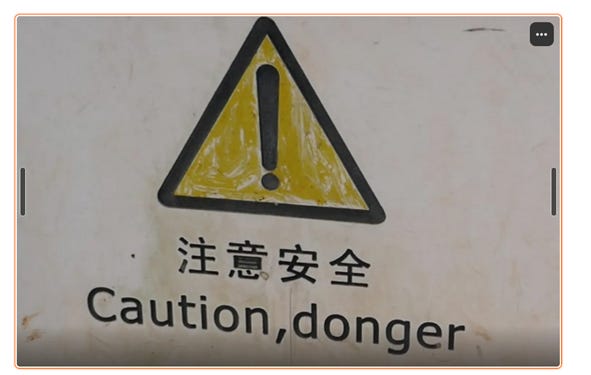
VPNs are legal in China
As long as they are registered with the authorities, says Deepseek. Foreign owned services are not and have now been pretty much put out of use by blocking access to them. So I now (believe it or not) use a Shenzhen company. Good connection, never goes down, very cheap, $33 a year, and it has remote servers all over the world. I can pretend to be in the USA to access certain services, to the astonishment of the service provider.
According to Deepseek, the use of VPNs is strictly regulated by the government and they are typically used by businesses and organisations for legitimate purposes, such as international trade and academic research. Foreigners have no difficulty obtaining them, but I was curious as to whether the Chinese can access them, as it seems you just have to download the app, pay, and away you go, so I asked the Chinese friend who put me on to them. She has one and she said that anyone who wants one can get one.
I presume I am monitored to some extent but have never had any issue with the authorities regarding any sites I have accessed, comments and articles I have posted and petitions I have signed in nearly 20 years, nor have I been aware of any blocking of sites I have sought to access. Porn is accessible but I have no further interest in such matters. I have to say I find the fact that the Great Firewall has this enormous breach has me totally bemused.
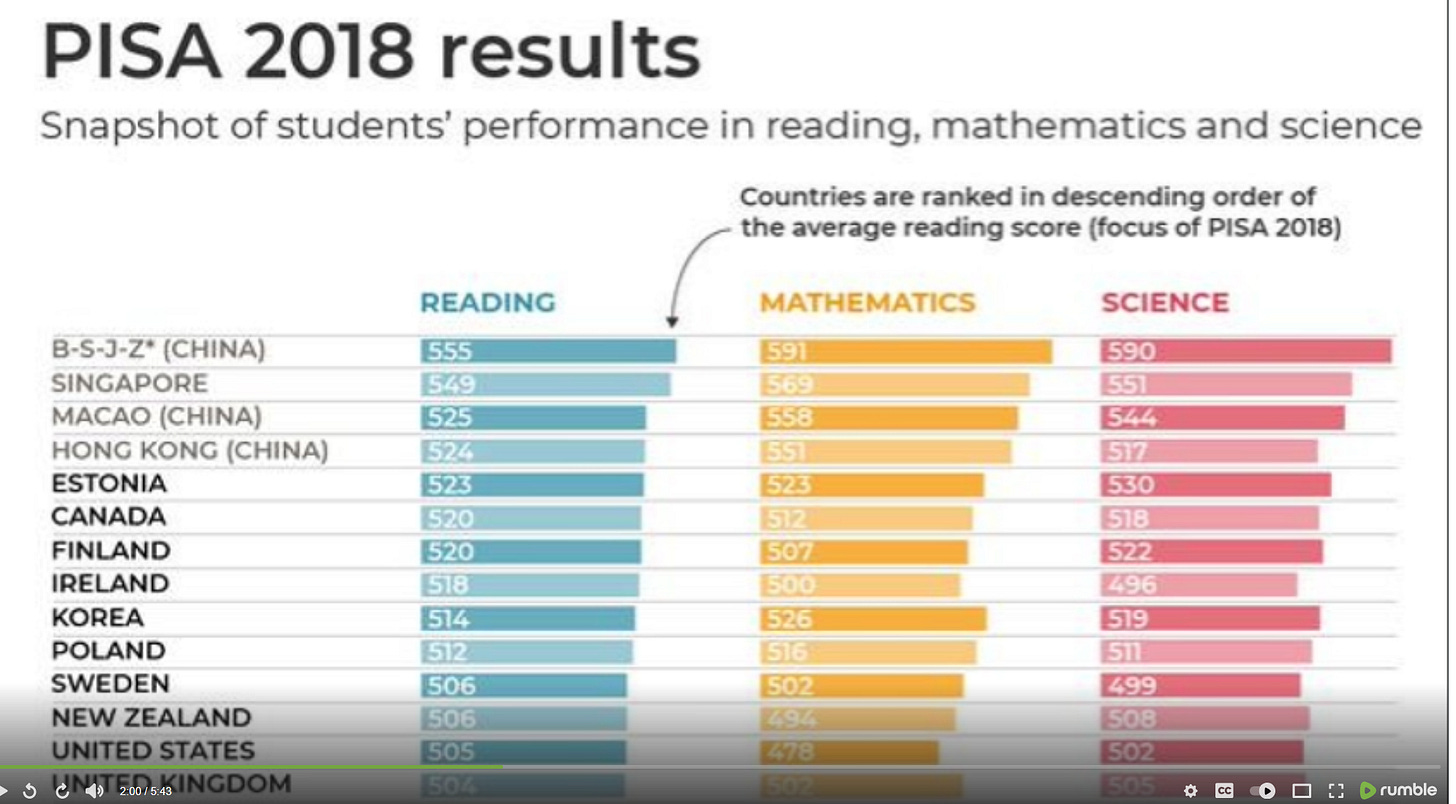
Hong Kong & Macau
I should include a brief note as these territories are part of China and yet still somewhat separate from it, and because I am very familiar with both of them. You have to pass through immigration going in and out from the mainland. This had controlled mass emigration from the mainland in the past, but that is no longer an issue, my Chinese wife has just obtained a new visa for HK, formerly just two visits, now unlimited visits for a year and stays of up to seven days. I think they are trying to recover lost tourism, there was a time when mainlanders surged across at weekends, but now the boot is very much on the other foot with Hong Kongers spending their weekends in Shenzhen where they find a better range of products to buy at lower prices. Businesses in Hong Kong are going down like flies. Such a change since I first went there.
While Hong Kong (stolen by Britain in 1842 and returned in 1997) is still very much a major financial centre, it seems second rate now when compared to Shenzhen and Singapore. All the manufacturing migrated to the mainland long ago. It has had about the highest cost of housing in the world, but prices are now falling. Much property is old, in bad repair, and incredibly compact. I went prospecting a few months ago on Cheung Chau island, the cheapest area, and found such poor quality properties with price tags of about $500,000. No thanks! In a block where we used to live in Shenzhen a three bedroom apartment about ten years old in good condition will cost around $400,000 (Shenzhen is one of the costliest cities in China alongside Beijing and Shanghai).
My company owns an apartment on Cheung Chau, I used to spend weekends there for a while for the swimming. It rents out now for $750 a month. In its entirety it is the size of a decent room elsewhere in the world (32.5 square metres, 350 square feet), but there it manages to provide a living room, kitchen, two bedrooms and a bathroom. Last October it was announced that Hong Kong will pass a law to phase out subdivided flats smaller than eight square metres (86 square feet – about ten by eight!) and ensure they have windows and a toilet. Such luxury!
To me, one of the curious aspects about Hong Kong is that nearly 30 years since the British packed up and departed, China has essentially left it alone. I know it has tightened up on security after a failed US attempted coup in 2019, but that was unfinished business from 1997. You don’t need a VPN there. It still feels very different from China and a UK expat can feel almost at home: drop into the pubs on Lockhart Road in Wan Chai (location of the World of Suzie Wong) – the Queen Victoria, the Churchill, enjoy a pint of Guinness – and see for yourselves!
It still drives on the left. Streets are still named after the nineteenth century queen of England, its former governors and sundry other British rogues and heroes. I made a film about that. I have a copy of the first map of Hong Kong on my wall, it was drafted in 1845, it was actually the personal copy of the first governor, Ulsterman Sir Henry Pottinger, I obtained from the Record Office in London, you can see his fold marks on it. Enlarge it and you can see Queen’s Road, Wellington and (Earl of) Aberdeen Streets, and so on: still there, unchanged to this day. Note that Queen’s was once on the coast: successive waves of reclamation have since tucked it behind Des Voeux and Connaught.
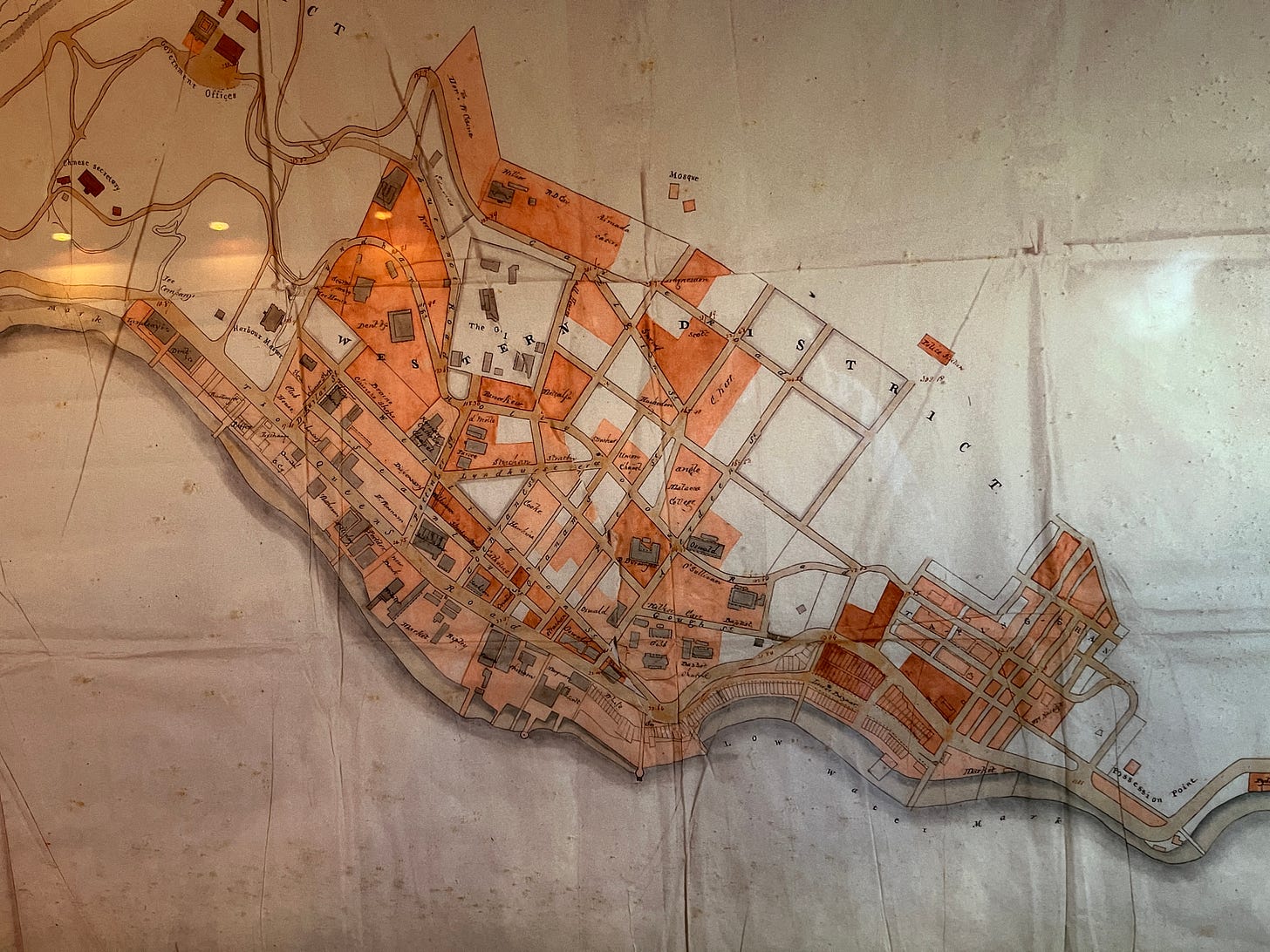
Macau was leased by Portugal in 1557 and handed back in 1999. It subsequently became one of the richest territories in the world (GDP per capita about $70,000) with an economy based on gambling – seven times the size of Las Vegas, whose companies are well represented there – and prostitution (which is never mentioned in the publicity!), both illegal in the mainland. It is the most densely populated territory in the world, with two thirds being reclaimed from the sea. Its inhabitants have the fourth highest life expectancy and are scarcely taxed, instead they get a handout from the government every year.
Gambling income actually peaked in 2013 and it is no coincidence I feel that this was shortly after Xi Jinping’s accession. I suspect that he has instigated a major collapse in prostitution too, but that is something that detains me not in my advanced years so I cannot report. (As an aside, this happened in China at about the same time. The capital for it down here then was the region of Chang’an just north of Shenzhen, a glorious, licentious all-night paradise full of bars and “massage” parlours. Then, a TV documentary about it was shown to the entire country. The authorities were shocked – shades of the Bogart/Bergman film Casablanca I feel! – and a 9 pm curfew was enforced which killed it stone dead. I had just opened a bar up nearby in Houjie and that went down too).

Last December Xi paid a visit and stressed the need for Macau to further diversify its economy and reduce its dependence on the gaming industry. He’s a bit on the puritanical side, isn’t he? I wonder what he does for fun. Deepseek won’t tell me.
There is still some lovely old Portuguese architecture to see, but the majority of visitors to Macau go to the casinos and are youngish mainlanders and Hong Kongers. To give you some idea of its scale, consider this. From the HK ferry port at Sheung Wan there are sailings to both Macau and mainland Shekou ports. On my way back home I have to buy a ticket for Shekou. In order to do this I have to wend my way through and past always a queue of about a hundred getting tickets for Macau, until I reach the window for Shekou, and there is never anyone in front of me there. I just hope those young saps limit their stakes to about $10 like I did, once only (it lasted about five minutes on the machine) and don’t run into the tragic personal circumstances I describe in the final section of this article. Perhaps they’d be less keen if they knew that a large amount of their losses go to Miriam Adelson of Las Vegas Sands to fund ADL and AIPAC which direct the US congress and senate to kowtow to Israel’s needs, and gave Trump $100,000,000 for his election campaign to ensure his subsequent complicity in its genocide in Gaza.
Finally it just occurs to me that some reading this may be under the impression that while Chinese people can visit those Special Administrative Regions (SARs), they must be forbidden to leave the country: after all, living in such an oppressive state, wouldn’t they want to get out and stay out?
China’s enormous population is the number one target for neighbouring countries’ tourism industries. They can now visit Singapore, Malaysia and Thailand with visa on arrival and stay for a month. And of course they all go back home afterwards. Don’t be silly! I took my Chinese wife through those countries late last year. The odd one out is the Philippines. China used to provide half its tourists but under the current US satrap president it is virtually impossible for them to get visas. So to please its US overlord, hundreds of thousands of Filipinos dependent on the tourist trade have lost their livelihoods. And are even hungrier than they were before.
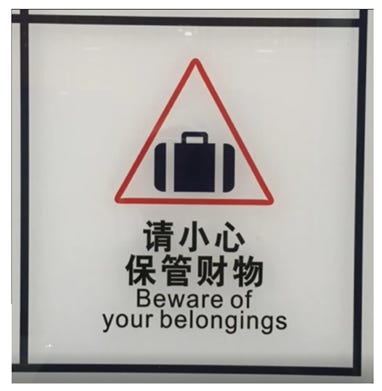
Corruption
Corruption is undoubtedly to a greater or lesser extent a factor in every country. In the UK it’s kept fairly quietly under the blanket and we learn about it only years later. At the other end of the scale, in the Philippines it is hilariously in the open: Congress delegates were recently told that if they voted to impeach the Vice President Sara Duterte they would receive additional funding for their municipalities. And so they did to a large margin, and she will be tried after the coming elections. A journalist who described it as bribery was then ludicrously threatened with a libel suit.
It’s fairly well known that the CPC was pretty well saturated with corruption, it was no secret and both CPC officials and Chinese citizens long identified corruption as one of their top concerns. Xi Jinping has waged a continuous war since announcing his anti-corruption campaign shortly after taking control in 2012, vowing to crack down on “tigers and flies”.
Researchers at the Central Party School, the CPC organ that trains senior and mid-level officials, had surveyed over 100 officials between 1999 and 2004, respondents ranking corruption as either the most serious or second most serious social problem. Similarly, in late 2006 the State Council’s Development Research Center asked 4,586 business executives (87% in non-state firms) to rate their local officials in terms of integrity. Almost one quarter said that their local officials were “bad”, 12% said they were “very bad”.
So have matters improved? What has Xi been doing?
The campaign has since dealt with over 120 high ranking officials (the number implicated below the provincial level is much higher), including about a dozen high-ranking military officers, several senior executives of state owned enterprises, and five national leaders. As of 2023, approximately 2.3 million government officials have been prosecuted. In recent times there has been a focus on the military, over a dozen top generals have been removed from their posts or placed under investigation since mid-2023, including two consecutive ministers of defense. Over the last few months, Xi has also fired the two generals who headed the PLA Rocket Force, which is in charge of China’s missile and nuclear capabilities. On a lower level I had seen that CPC members had been discouraged from engaging in subsidised parties and wandering off to Macau.
Since its debut in 2003, the Global Corruption Barometer has surveyed the experiences of everyday people confronting corruption around the world. Tens of thousands of people around the globe are asked about their views and experiences, making it the only worldwide public opinion survey on corruption. Least corrupt is top of the table and so on down it goes. In the 2024 table, China scored 43 which put it at 76 out of 180 countries. Other entries include:
1 Denmark (Score 90 out of 100)
10 Australia
15 Canada
17 Hong Kong
20 UK
28 United States
30 Israel
114 Philippines (wow, 66 are worse than that)
154 Russia

So this chart for China shows that there has actually been very little perceived improvement throughout Xi’s reign.
https://www.transparency.org/en/countries/china
Full list here:
https://en.wikipedia.org/wiki/Corruption_Perceptions_Index
So there is still work to be done and it continues. In the first nine months of 2024, the party punished 889,000 members and officials. In January 2025, President Xi emphasized that corruption remains the “biggest threat” to the CPC, underscoring the government’s commitment to addressing entrenched corruption.
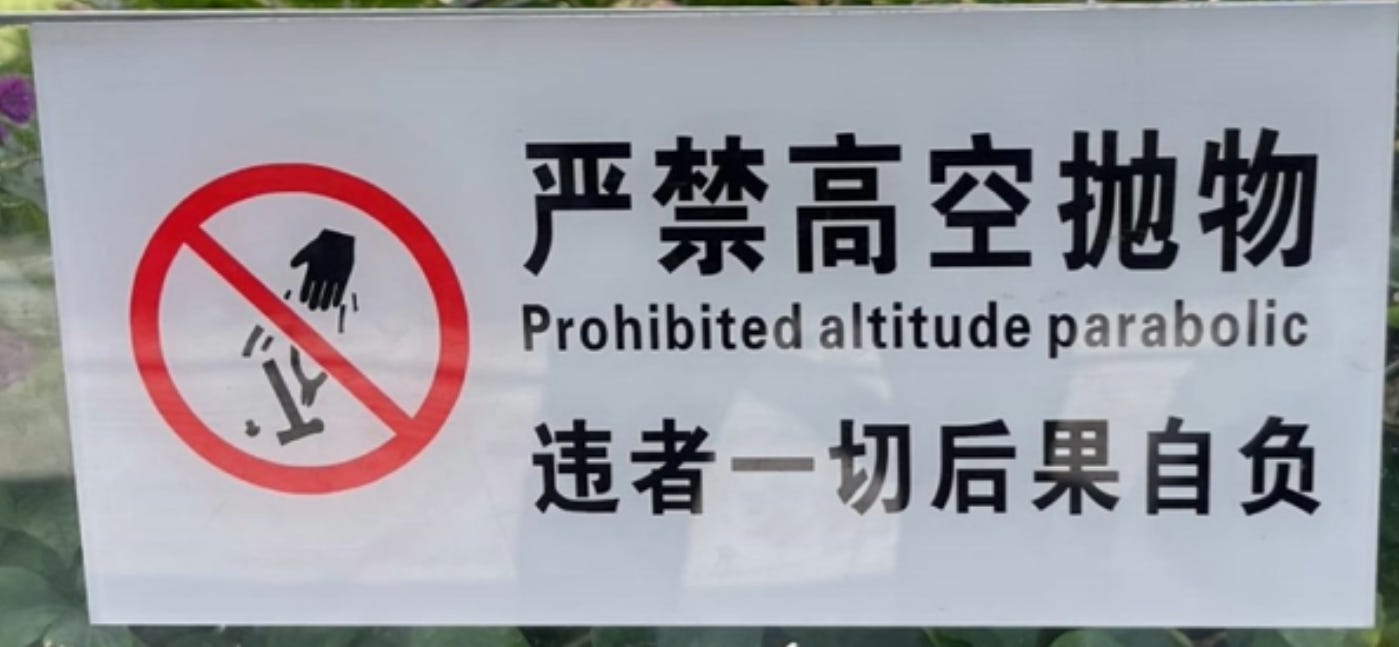
Shekou and Shenzhen
If you are a scientist, or take some interest in science, you will be aware of the Big Bang theory, in which the entire universe is said to have exploded into being from a microscopic start. Shenzhen, (actually Shekou, then just a fishing village but now incorporated into Shenzhen proper), I think, has parallels with that because it is the microscopic location from which a desperately impoverished nation grew its economy to being the largest in PPP in the world in a little over 40 years.
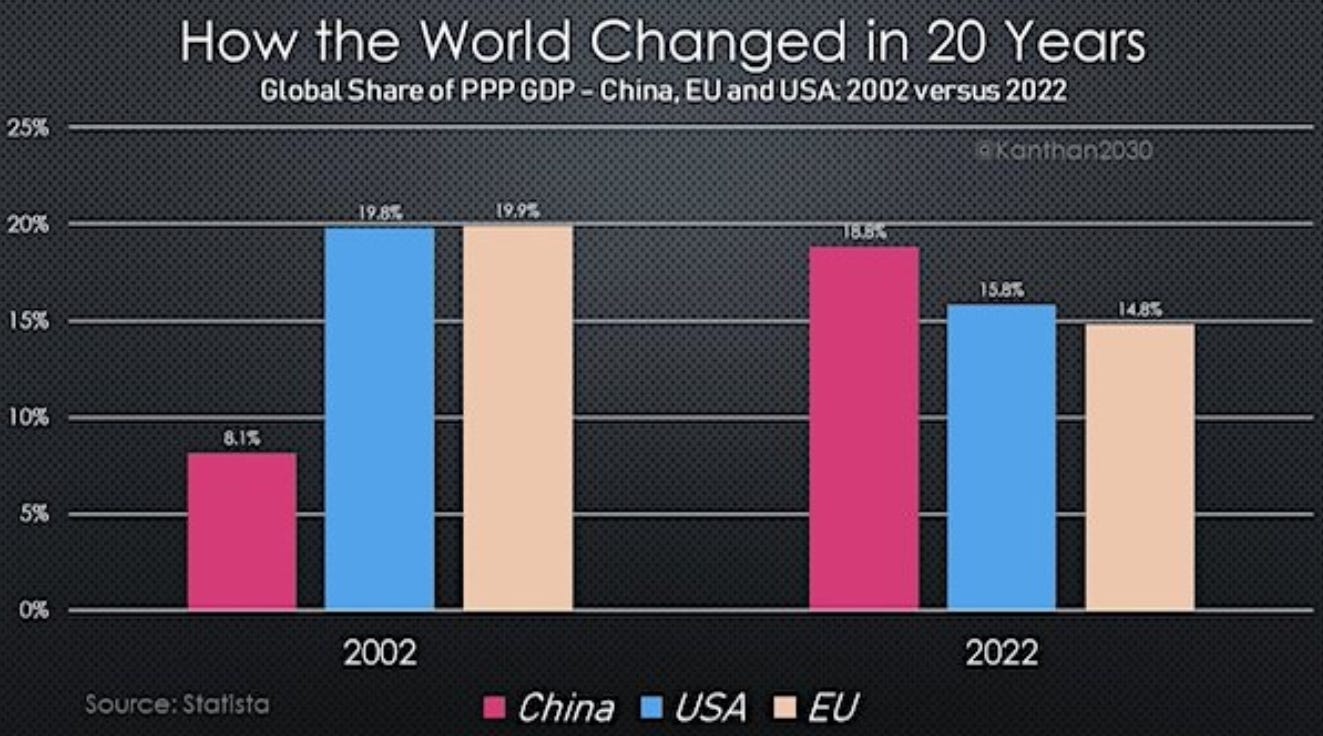
In 1978, just a couple of years after the death of Mao Zedong, a new direction was being set up for China. In Beijing, Deng Xiaoping had secured control and began to formulate his plans. Transport Minister Ye Fei asked Yuan Geng, CEO of the China Merchants company, long exiled to Hong Kong, to consider bringing it back to China. His report was forwarded to the State Council on 9 October 1978, recommending opening up the mainland economy to the international market using China Merchants as an instrument. The proposal was approved in three days. He arranged a lease on just two square kilometres of land on the Shekou peninsula, across the water from Hong Kong. His only regret, he was to say later, was that he had not taken on a larger area. His actions anticipated the Reform and Opening, which began in Shenzhen proper the following year.
Throughout the 1980s, Yuan Geng pioneered revolutionary (or perhaps counter-revolutionary!) policies that were unprecedented in post-1949 China, such as merit-based recruitment, promotion and pay, open access to housing, competitive procurement bids, local elections, local press freedom, and attracting foreign direct investors. In 1981 he coined the slogan “Time is money, efficiency is life”. While shocking the diehards in Beijing, Shekou’s slogan was approved by Deng Xiaoping following his visit to Shenzhen in 1984. It was inscribed on a giant billboard near the port in Shekou and became a motto of the reform era.
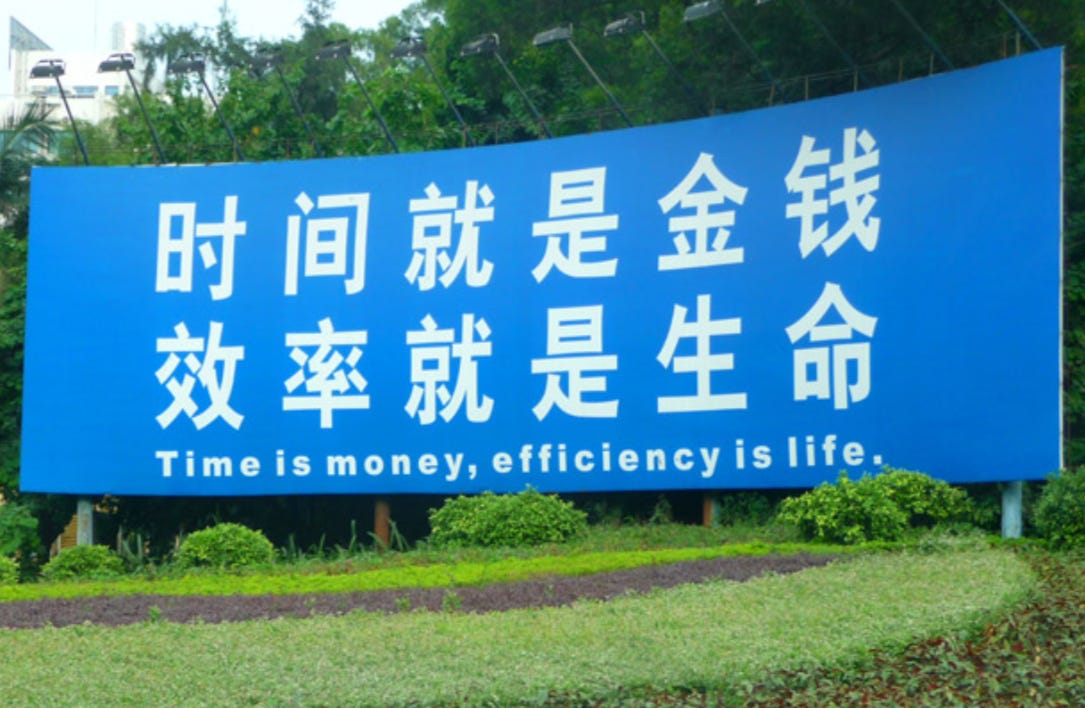
Back in England, in 2006, we started to receive enquiries from China for our products. I noticed that they were all coming from this same city, of which I had never heard. I had to look it up on a map. I saw that it was in the far south of the country, adjacent to Hong Kong. Enquiries continued to build and the following year it became essential to get out there and find out what was happening. I stayed for a week at the eastern end in Luohu district, visited five companies by then on our books and a potential agent. A life changing experience. They had been simply crying out for our products. I returned a month later to set up a subsidiary company in Shenzhen to handle sales and technical support (we still manufacture mainly in Exeter in England to protect the IP). It became a full Wholly Foreign Owned Company (WFOE) in 2014 and is still operating with its original secretary Sarah Yue Lan. China became our main market in 2010 (we gained the UK’s Queen’s Award for International Trade in that year) and it has remained so ever since.
But in the intervening time before that second visit I had done some research and decided that the place to reside while visiting was that Shekou (translates as the mouth of the snake) district at the other end of the city, which was then the main hangout for a very large semi-permanent foreign contingent: oil workers had been among the first, they were drilling off the coast, then the foreign factories, Sanyo was among the originals: this caught my eye the other day while dining in what is now a restaurant area, all that still shows of that Sanyo factory:
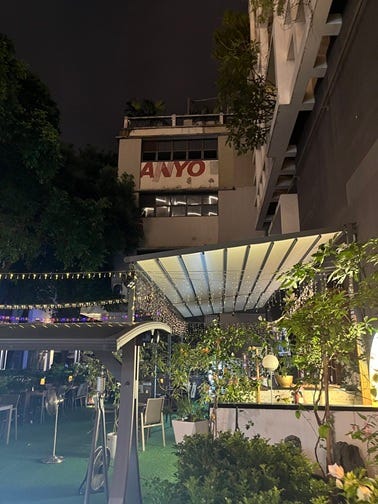
Staying in the Haitao hotel on Factory Street One, then busy with foreign business visitors but now converted into apartments for locals, I explored my surroundings. I thought I had died and gone to heaven. It was to be the first of about 50 visits up to 2020, since when I finally became a retired, permanent, married Shekou resident.
If you want to see more of Shekou, here is an early film I made back in 2011, one hour long. It’s one of my first, a bit rough and ready, but I have resisted re-editing it. Skip if you like. I have noticed that most people skip videos on my postings and I have to admit that I do too on others.
Shekou (and indeed China) has gone through many changes since then, so the film is of particular historic interest in that respect. Shekou when I first knew it in 2007 was rough and raw, with something of a Wild West feel about it. I look back on those times with fond memories, and in fact, I made another film entitled Shekou – Paradise Lost – regretting those changes, but that was eight years ago, and times have moved even further on since then!
So Shekou with its original Factory Streets 1 to 8, now without any factories as the rents are far too high, has been transformed with the factories gone to the outer suburbs and neighbouring Dongguan and elsewhere, and a substantial tourist area has grown up focussed on Hai shang shijie, Sea World. I am sure you will be wondering, if you have watched the video, whether the Lady Bar Street is still there: sorry to have to report that as in Chang’an, along with most of the rest of the attractions featured, it has regrettably long gone, including the Snake Pit, the first western style bar in China which opened in 1987 and closed last year (too few expats now), although there are still a few bars (George & Dragon, Gecko, Flames) featuring talented Filipino musicians with a good variety of foreign beers and wines. But along with all those mourned losses, we drink a toast to most of the erstwhile foreigners now, the few left are English teachers and those like me who married locally and secured residence.
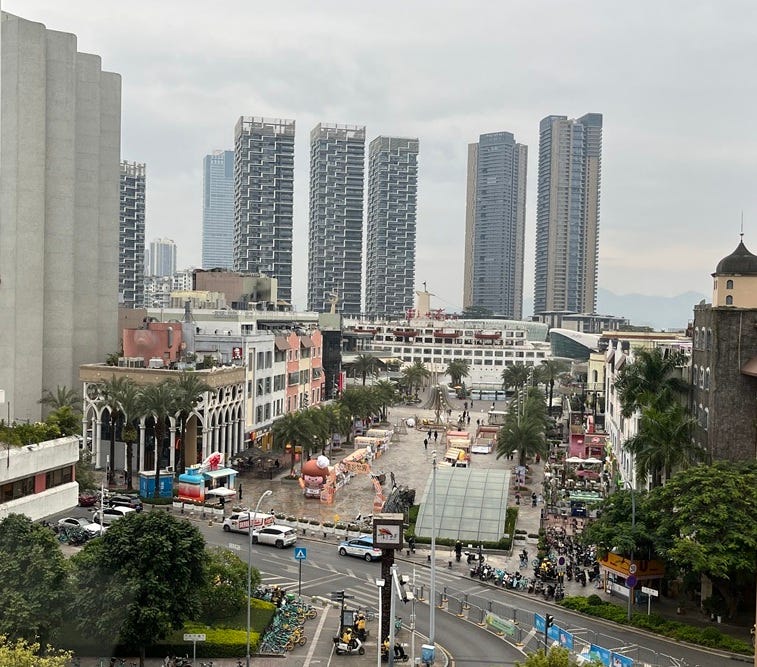
Hai shang shijie – Sea World
Yes, that’s a ship in the background, the Minghua, launched by de Gaulle in 1962, now enclosed by land reclamation, currently undergoing a major refit. Behind is the sea, once fenced off with dire warnings to anyone thinking of escaping across the bay to Hong Kong, but now with a waterside walk and a statue of Yuan Geng, who died at the age of 99 in 2016. Incidentally his birth family name was Ouyang, as was the name of the woman in the video who showed me the future plans in the China Merchants’ building, so I assume she is a grand-daughter or otherwise married to a grandson..
As for day to day life, what would you notice if you came here?
People here live normal lives, just like you. We eat, sleep, work, shop, and have fun. Otherwise, perhaps, the surprises:
Certainly I think one, I may be wrong as I have been away a long time, is the absolute disappearance of cash. Most people seem to use Wechat Pay. You just scan the QR code on your phone and enter your PIN and the amount. Even street hawkers will be so equipped. I guess about 99.9% of transactions now go this way. I keep a bit of cash in my wallet in case of emergency, I withdrew it at an ATM about six months ago, and shopkeepers will take it although they make a face and have to go hunting out back for change.
All our taxis and buses (BYD – Build Your Dreams! I have just read that BYD is now third biggest manufacturer in the world behind Toyota and VW) and a very high and rapidly increasing proportion of cars are all electric. You can distinguish them as the electrics have green registration plates and others are blue. BYD is the top seller in China and foreign brand sales are collapsing, down to 30% in 2024. But Mercs and BMWs still selling quite well to the show-offs.
Within ten minutes walk we have a McDonalds, a KFC and three Starbucks. Two MTR stops away is the biggest supermarket in the district, a Walmart. A little bit further a Sam’s Club, I am just reading that it opened in 1996 and there are 53 in China, where there are also a total of 305 Walmarts, 6,800 McDonalds, 7,500 Starbucks, and 11,600 KFCs (will the US somehow avoid bombing all of them?)
I have not seen any air pollution, for a long time. It could be quite bad when I first came to Shenzhen, it is there in my early films.
There are no people sleeping on the streets.
You can walk the streets any time of day or night in perfect security.
Nobody carries guns. Not even the police. There are just one or two mass killings in China each year, mostly stabbings. In the last one, on November 19, 2024, 39 year old Huang Wen drove into students and pedestrians outside a primary school in Changde, Hunan, as students were arriving to school: 30 people were injured, including 18 students. Huang was arrested at the scene and later sentenced to death with a two-year reprieve.
Here is the record for mass killings in Another Country with a quarter of China’s population:
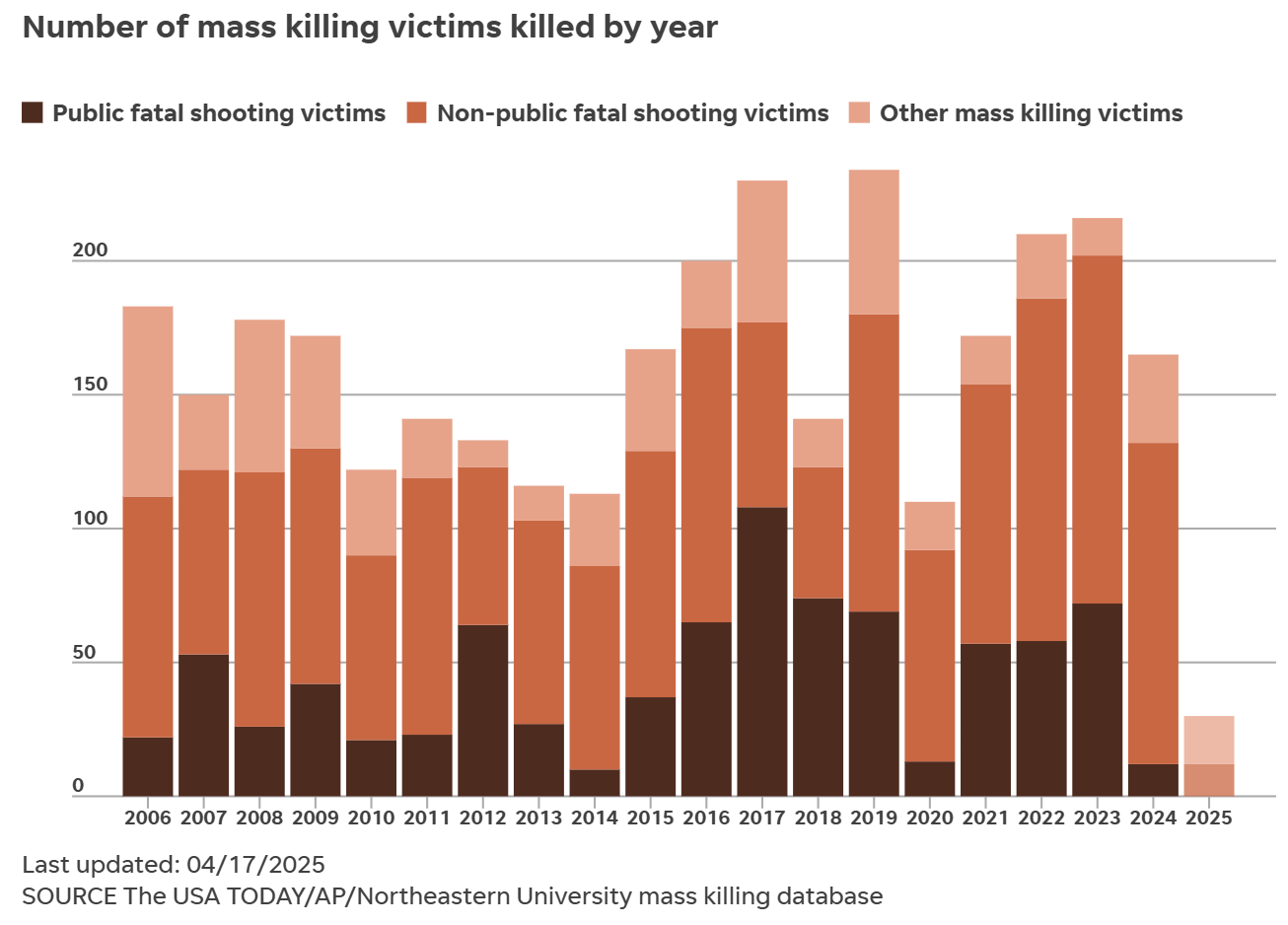
There is virtually no crime. Nobody fears being burgled. I was pickpocketed here and in Xi’an in around 2010.
And nobody fears a knock on the door in the night.
There are no beggars on the streets. There were up to about 2010. The beggars then were part of a syndicate, they were collected and driven to their allotted locations at 5 a.m. It was rumoured that one persistent old woman owned four properties.
There are no spivs any more at the Shekou port: “Taxi sir?” The meter would be switched off and unwary newcomers unfamiliar with the currency would then pay up to five times the going rate.
Driving standards have improved considerably, you don’t risk being knocked down by cars at the crossings now, perhaps it’s the cameras that have been installed. But the basic rule of the road has not changed, which is essentially that there is no concept of right of way, it’s everyone for themselves. You can be waiting at a red light and when it changes, before you get a chance to move across there will be a stream of cars crossing your path from the opposite direction. But the constant symphony of car horns seems to have stopped.
The main safety problem now turns on the fact that still nothing with less than four wheels obeys any traffic law, even down to which side of the road to ride on. The main issue is the massive introduction in just a few years of millions of electric scooters which are ridden mainly on pavements, often too fast with the rider often looking at a phone. You can start to cross on a green pedestrian light and be instantly assailed from left or right by a swarm running through a red light. I have been struck several times, a friend was seriously injured. They are not allowed to be taken inside properties for charging and storage because of the fire risk, so when parked they occupy just about every spare space and take up half of the pavements.
As an aside, many of these scooters are delivering online orders. Each belongs to a firm which has its own identifying colour: yellow, blue, one a disgusting off-pink. The lifts of apartment blocks are running up and down all day with the helmeted riders carrying the orders. Delivery costs are cheap and the gig riders poorly paid, they are paid by the delivery and are running helter skelter when not riding to get done faster. My wife uses them a lot. They bring my Sunday pizza. People are switching in droves to online shopping and physical shops are going out of business.
Well the electric scooters are my main gripe – millions is not an exaggeration, the population of Shenzhen is about 13 million and almost every adult seems to own one now – and the other is fire doors. We now live in a properly run residential area but in an earlier apartment block of 30 floors, the fire escape was supposedly protected by three doors, one each side on the corridors and one at the entrance, but all that I inspected were jammed open by the inhabitants. Remove the jamming chunk of paper or cardboard and it would be replaced by some imbecile within hours, and anyway because the doors had been so treated the closing mechanisms were all broken. I complained to the local community office, they came around and talked with the building management whose response was to stick a notice on the doors telling people to keep the doors closed. And nothing changed.
If you had been before, you would be amazed at the changes. When I first arrived in 2007 there was one MTR line stretching about a dozen stops from Luohu to the Window of the World. We used to take taxis everywhere. Now the buses are running pretty empty as there is an MTR station within a couple of hundred metres from almost any destination and with the traffic as it is, so much quicker than buses and taxis. Services are very frequent, two or three minutes between trains is typical. There are now 13 lines, more building going on: this is an up to date map.
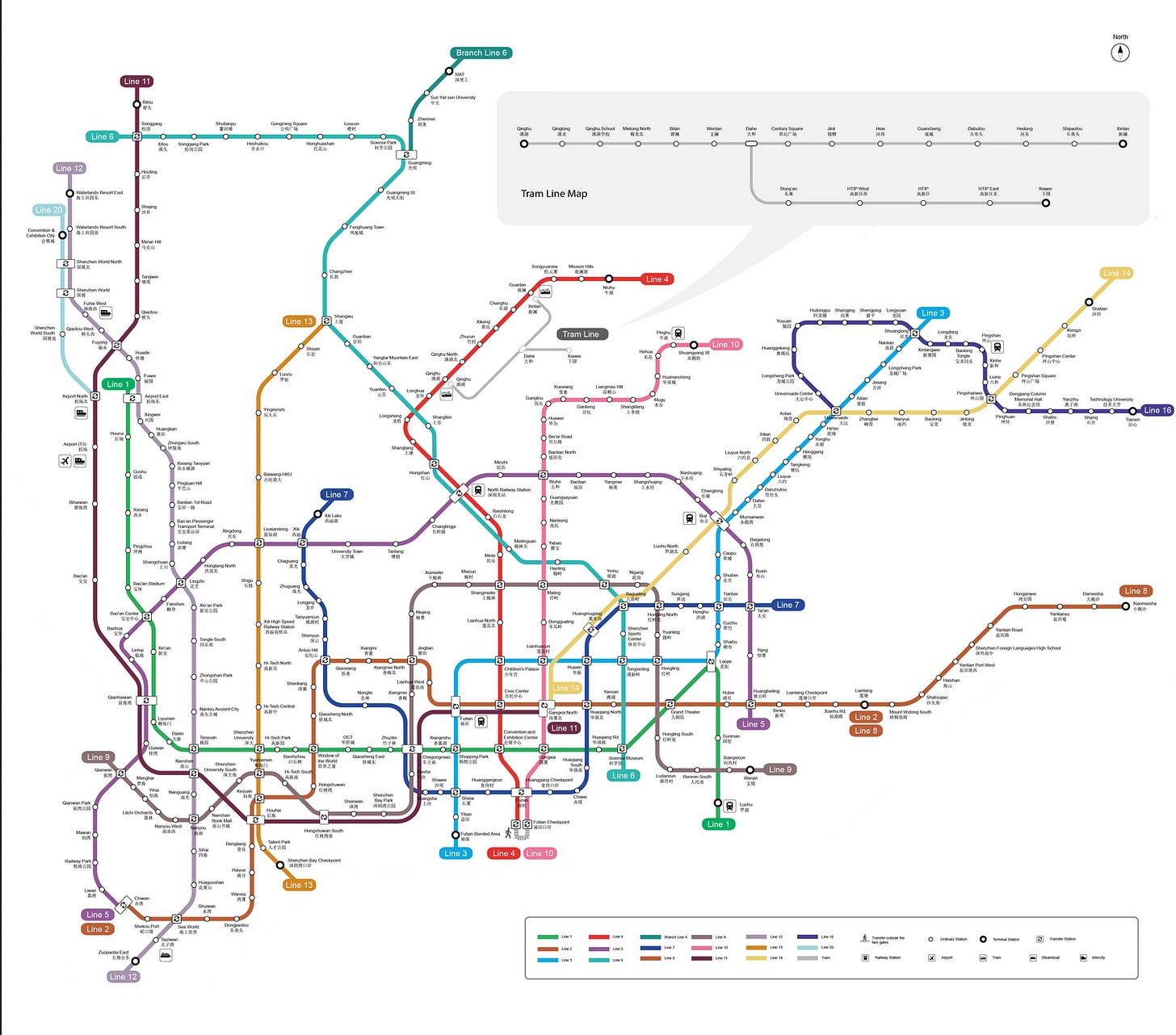
Recent additions there to the east go to the beach resorts of Xiaomeisha and Dameisha. Accordingly they can get very crowded, and it pays to go a bit further to the Dapeng peninsula where you can visit the Ancient Fortress.
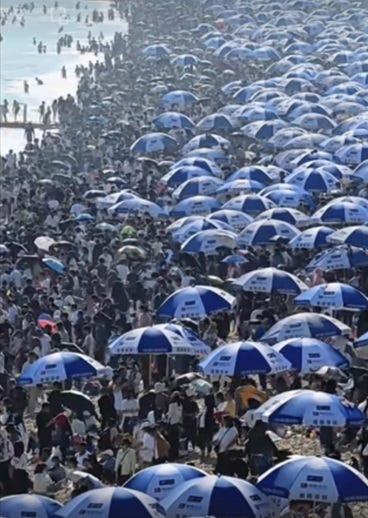
A thought experiment. Imagine you are on your local MTR in your nearest city and the voice over is telling you the name of the next stop in your local language. Then another voice chimes in and repeats the information in Chinese! Well here we get the information in Putonghua (Mandarin) first, then Guangdonghua (Cantonese), and then English! Xia yi zhan – next station, its name, get ready, doors open on the left/right and mind the gap between the train and platform. The first two are female and the third is an American male. Buses similarly, and they estimate the time to reach the next stop. Cantonese takes precedence in Hong Kong. Many road signs are duplicated in English too.
Possibly a suitable point to show the development of the high speed train system during much the same period, now operating at 350 kph rendering much internal flight obsolete. Links are now reaching down into Laos (Vientiane, in 2021) and are being extended through Thailand via Bangkok and ultimately all the way down to Singapore.
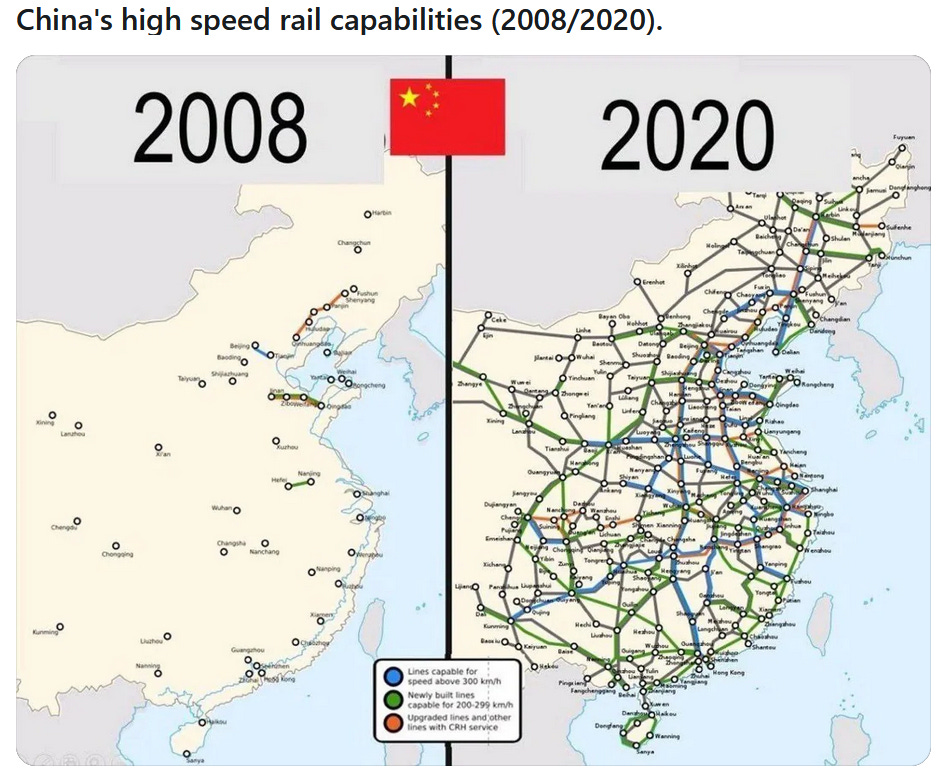
I had read of a proposed 400 kph link between Beijing and Moscow but that doesn’t seem to have materialised. It’s still the ancient slow Trans-Siberian then, a six day party, I can thoroughly recommend, I did it in 2012. Wonderful scenery. I made a film of that too.
Mentioning internal air travel, COMAC is now giving Boeing and Airbus a run for their money with 146 C909 aircraft in active service as of December 2024. Currently, the largest operator is Air China with 37 aircraft.
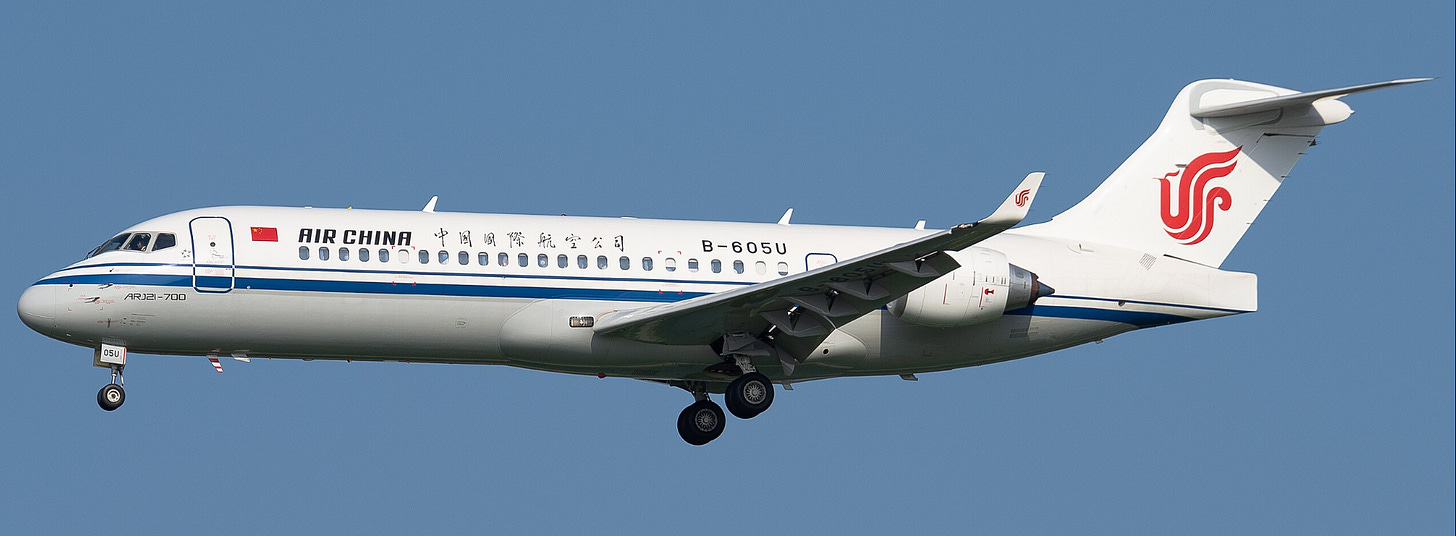
It’s also used by Indonesian TransNusa and Laotian Lao Airlines, with VietJet Air just placing its first order adding Vietnam to the list of foreign users.
Let’s finish up talking about transport with some breaking news about BYD. The BYD Seagull has just made history by winning the 2025 World Urban Car award at the New York International Auto Show, the first time a Chinese brand has received a World Car Award. The Seagull, which has become BYD’s fastest-selling electric mini car in China since its debut in 2023, beat 11 other finalists. The 2025 model starts at $9,540, has a 55 kW electric motor, and two battery options providing ranges of 189 miles and 252 miles. It includes advanced safety features and the DiPilot 100 intelligent driving system, which supports highway autopilot and automated parking. A Mini for the 21st century!

And BYD’s executive vice president, Stella Li, was named 2025 World Car Person of the Year.

Stella Li
BYD is a Shenzhen company but is now building a massive factory, “the size of a city” to build a over a million cars a year. The Zhengzhou facility, already sprawling across phases one to four, is expanding to a jaw-dropping 50 square miles: the size of San Francisco.
https://insideevs.com/news/754460/byd-100-billion-huge-factory
Five Chinese women
The following and final section is based on my first Substack post made in August 2024, so as many of you may not have seen it I’ll update and repeat it.
The stories I tell below are all true. They are not the life experiences of famous historical women, but simply of ordinary members of my extended family in China. Their misfortunes are certainly not exceptional and so I believe they well illustrate certain widespread aspects of women’s daily life and consequently the state of women’s rights in China.
The first story concerns a cousin. She is a Hunan girl, the older auntie’s daughter. She is now 34. She was married very young to a Chinese husband and had four children by him, in contravention to the then one child policy, the first three were girls and were hidden from the authorities because her husband wanted a son, which finally happened. They worked away in a factory while his parents looked after the children. They argued every day. Sometimes he beat her. She divorced him. In their decision the court awarded the children to the husband on the grounds that the mother had no means to support them — this is a common outcome in Chinese divorce proceedings. After a while she took up with another man who told her that he loved her. She bore a child with him. It then turned out that he was already married, but they are still together after three years with the 18 month old girl. He told her he would arrange to marry her if she gave birth to a boy, but she does not want any more children.
The next relation is the one we privately and unkindly refer to as No Chin Cousin. She is also a Hunan girl, Laughing Auntie’s daughter. She is 44. She also married very young, to a Chinese man of the Hakka ethnic minority who works for FedEx. He took to gambling on the stock exchange ten years ago. He lost cumulatively about $200,000. When she found out what had been happening, they divorced. Her two sons were awarded to her because 90% of his wages have to pay back his debt, but they are living together again now, sleeping in separate rooms but pretending to their children that they are still married.
A third was married to my wife’s younger brother. She was from Gansu province in the far north. She came to Shenzhen when she was 18, met him at work and they were together for 7 years before they married when they were 27. A son was born and after two years a daughter. By then he had taken to going across to Macau on gambling expeditions. Over four years he lost about $100,000. His wife knew he was gambling but not the extent. To help cover his debts to the banks his mother sold her house and tried to keep the matter quiet, but at this point his wife discovered the scale of his debt and divorced him. He carried on gambling and lost another $100,000. There being no way to pay the debt, he committed suicide at the age of 31, by cutting his wrists and neck. His widow took the children back to Gansu and remarried after one year and she has given birth to another boy. She is now looking to park the first-born boy back with the first husband’s family while keeping the daughter, probably under pressure from her husband.
The fourth is married to my wife’s other brother, still living. She just recently discovered that he too had amassed enormous debts from investment speculation of the order of $350,000, borrowed from friends and family. He attempted suicide recently by driving his car at speed into another, injuring the other car’s travellers, but he survived. They actually divorced five years ago, but they never separated, and are still together as far as we are aware, but we have no recent news as they are both now shunned by the rest of the family who don’t expect to see any repayment of loans they may have made.
The boy vs girl issue is deep-rooted in Chinese culture and as you can see is still prevalent in several of these stories. During the One Child period, sex determinations before birth could be illegally obtained with a little money in an envelope and an abortion arranged; new born girls were frequently murdered or else brought up in secrecy. The boy/girl ratios of registered births in that period varied across the country from a normal 100/105 to 100 to 120/140 to 100. In 2020 there were 32.5 million more men than women in the age range 5 to 39.
Chinese men are by and large in their treatment of women somewhat where westerners were in the 1950s. Feminism has not really made much of an advance yet. Roles of men and women are still generally very traditionally defined. This is not an entirely bad thing in my view, and I find it a refreshing change, I think in western society the roles are no longer clear and apparently it is no longer possible even to define what constitutes a man or a woman. But nevertheless even within a traditional setting it is still perfectly possible to treat women with courtesy and respect, which many Chinese men are incapable of doing.
I do not want to paint all Chinese men as oafs, that would be far from the truth, but there is a fair proportion, particularly in small towns and rural areas who talk at the top of their voices, spit, push in at the front of queues and smoke in restaurants and public places. Put three or four such together and the crescendo becomes deafening. Smoking while banned from restaurants and many public places is still far more socially acceptable than in the west. In 2023 it was estimated that about a third of doctors smoke! I was in a café in a small town in the north of Guangdong recently and at the next table were two men. One was doing all the talking, or rather shouting, eating with chopsticks in his left hand while simultaneously smoking with his right. Another time in another restaurant at the next table there were six men all smoking underneath a no smoking sign. I pointed this out to a waitress but she shook her head.
I remarked a while ago that in China there is law but no rule of law: an exaggeration, but not without a whiff of truth. Waitresses and shop assistants will generally not tell smokers to stop for fear of losing trade. Or ask them not to make an excessive noise. In yet another restaurant in a small town there was a colossal racket coming from the next room. I need to explain that larger restaurants will often have not just a main dining area but private rooms with a large round table seating up to a dozen for private parties. When it got to the point where I had to raise my voice to make myself heard within my group I asked the waitress to deal with the situation, to no avail. So finally I got up and banged as hard as I could on the partition. Remarkably there was then total silence for about ten seconds, after which conversation there picked up again at a reasonable level. I think I embarrassed my party!
But I have strayed too far from the topic. You will have noted that one of the three examples quoted above centres on domestic violence. This is statistically significant. In 2010 it was reckoned that a 24% of women aged between 24 and 60 had been victims. Domestic violence is endemic in China and actually has its roots in Confucianism wherein the man is the master and sole arbiter of the household, the wife merely one of his possessions, and internal violence held to be a private matter. Attitudes began to change and from the 1980s following Reform and Opening, pressure began to build, women’s groups began to be formed, and local legislation began in 2000 in Hunan, but it was not until 2016 that the national law against domestic violence was eventually introduced.
But to return to complete the discussion, the miscreant of my fifth and final tale is not a man. She is the woman’s mother. When the child was a few months old her mother abandoned the father and her to go off with another man. She went on to have three more children with two different men but never remarried. She is now 70 and is supported by willing children. The child meanwhile worked barefoot from the age of 6 in the rice fields of northern Guangdong at weekends to help her father, aunt and uncle. After schooling, at the age of 14, to escape the physical abuse her aunt doled out she rejoined her mother, working as a professional photographer for six years. She received no pay, just working for board and lodging. Her mother assaulted her three times leaving permanent damage to her teeth. Then she left her mother’s business and worked in factories, making electronics and then shoes. She opened a hairdressers and employed five people when she was 24, but the shop became a casualty of redevelopment as no alternative low rent shop was available in the immediate area. She first married at the age of 26. Her husband beat her so she left him after two years. When I met her she was penniless and reduced to sleeping on her mother’s sofa. That was sixteen years ago. I have cared for her since, and reader, I married her, finally in 2023. Better late than never!
So to summarise, two of our five women suffered physical abuse, three had devious and dishonest husbands, and four secured divorces, but so far three of them (I dare to postulate!) ultimately formed a stable and happy relationship, two of them with a Chinese, and to the best of my knowledge the rest of the family have adequately happy and secure relationships. But undoubtedly many men’s attitudes to women in China are still archaic, this needs to change, and undoubtedly it will.
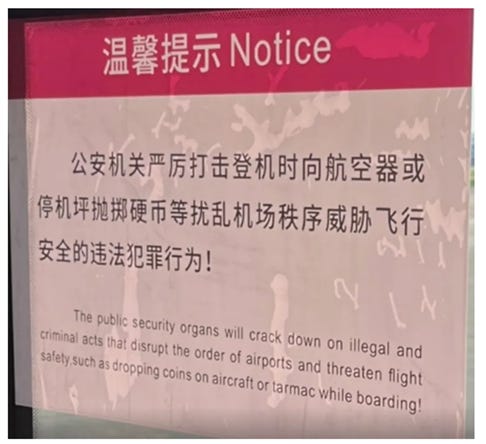
Conclusion
Let’s first dispose of the notion that I am a paid shill for China. I am not. And I live here because I choose to. I have tried to be objective, and while China is not perfect, in my opinion it is one of the best countries in the world in which to to live. It has a government which works for its people: how else to spring from destitution in 40 years and take 800,000,000 people out of absolute poverty? Its population recognises that and US run opinion polls such as Pew consistently reveal world-topping over 90% government satisfaction and happiness ratings. Things have got steadily better over those 40 years and there seems no reason why they should not continue to do so. So we forgive its few failings.
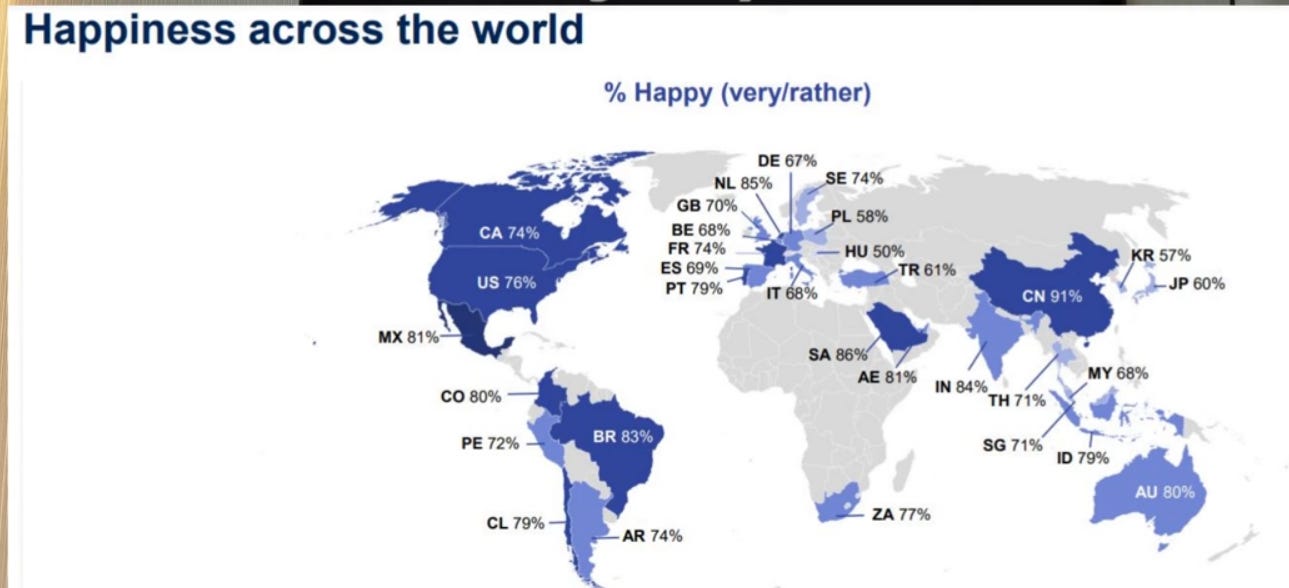
With my wife I have Chinese residency. We also have joint Philippine residencies through a retirement visa scheme. If you want to see what China is not, but perhaps once was, visit the Philippines. Its GDP once second to Japan in the region has slid down the ladder for sixty years. It is a corrupt, failed state with poor governance, dismal infrastructure, unsatisfactory health system, with an unhealthy, undernourished ill-educated population, many consigned to live in squalid leaky sheds barely fit to house chickens. Then you will truly appreciate what China has achieved.
…………………………………………………………………
If western men knew what it is like to have a Chinese wife, they’d all want one. I was discussing this topic with a friend here who also has a Chinese wife.
“They do this for you, they do that” I was saying, giving examples, and he was nodding along. “And of course they will shower you”.
His face went blank for about five seconds. Finally he said:
“They do ?”
